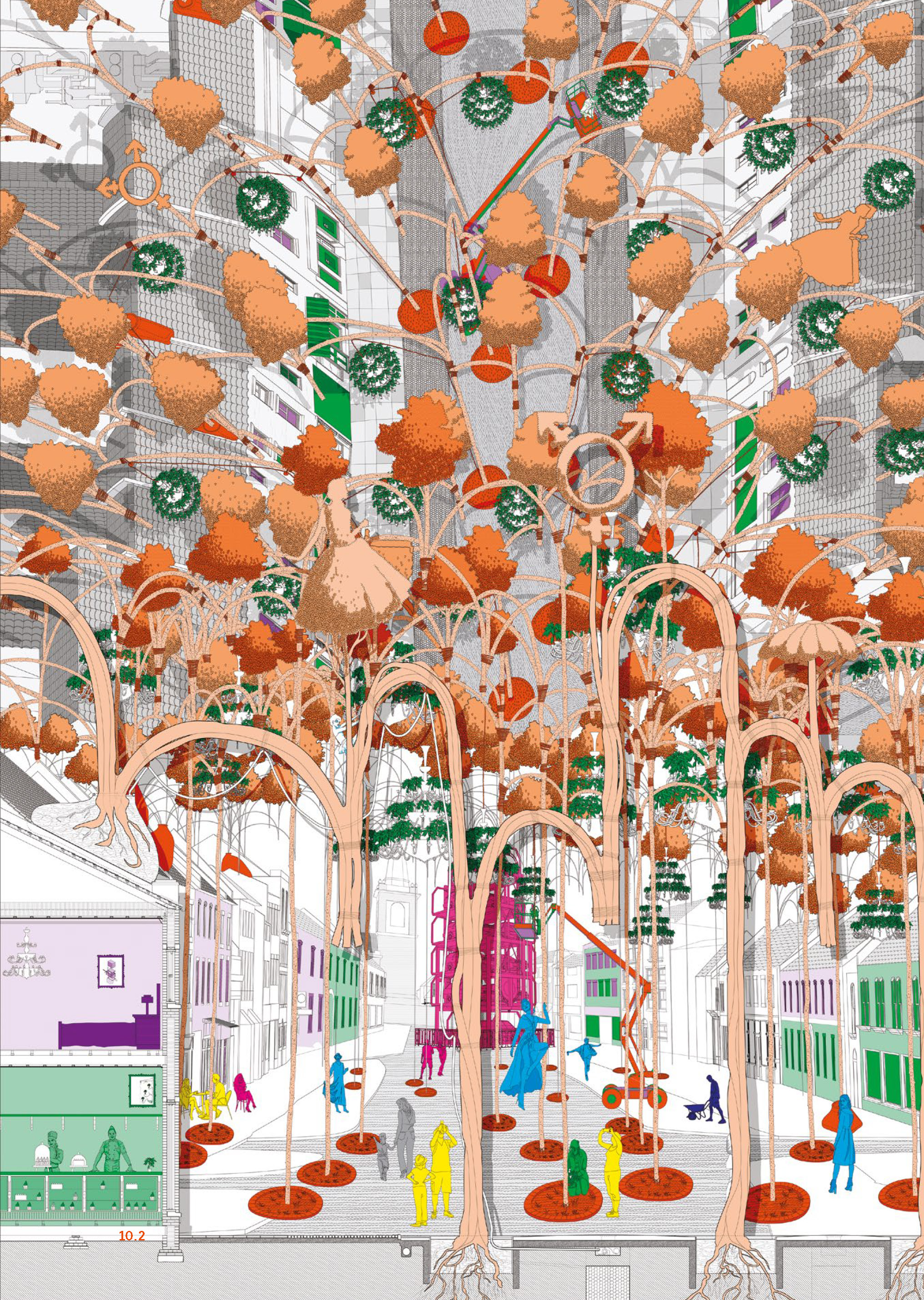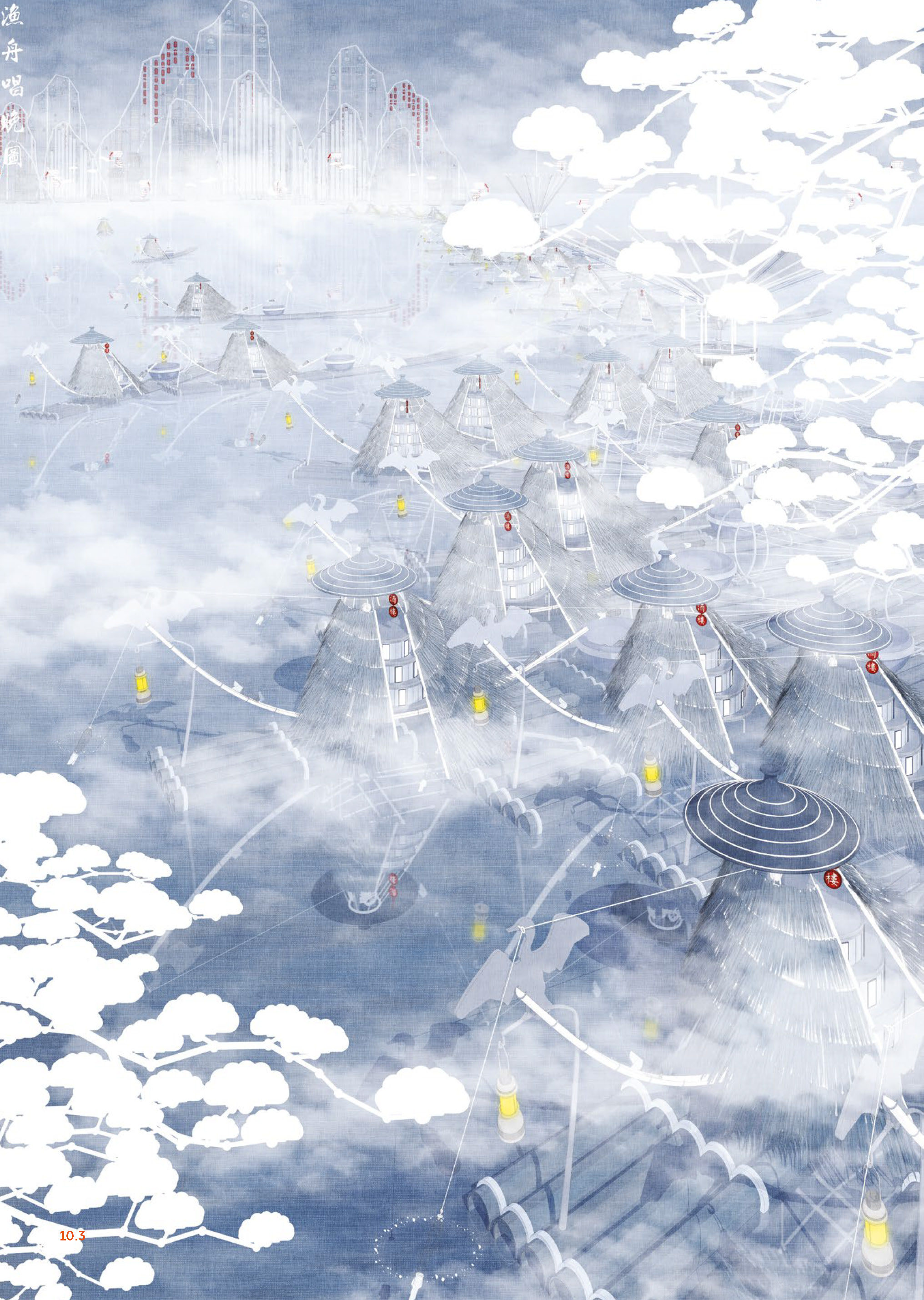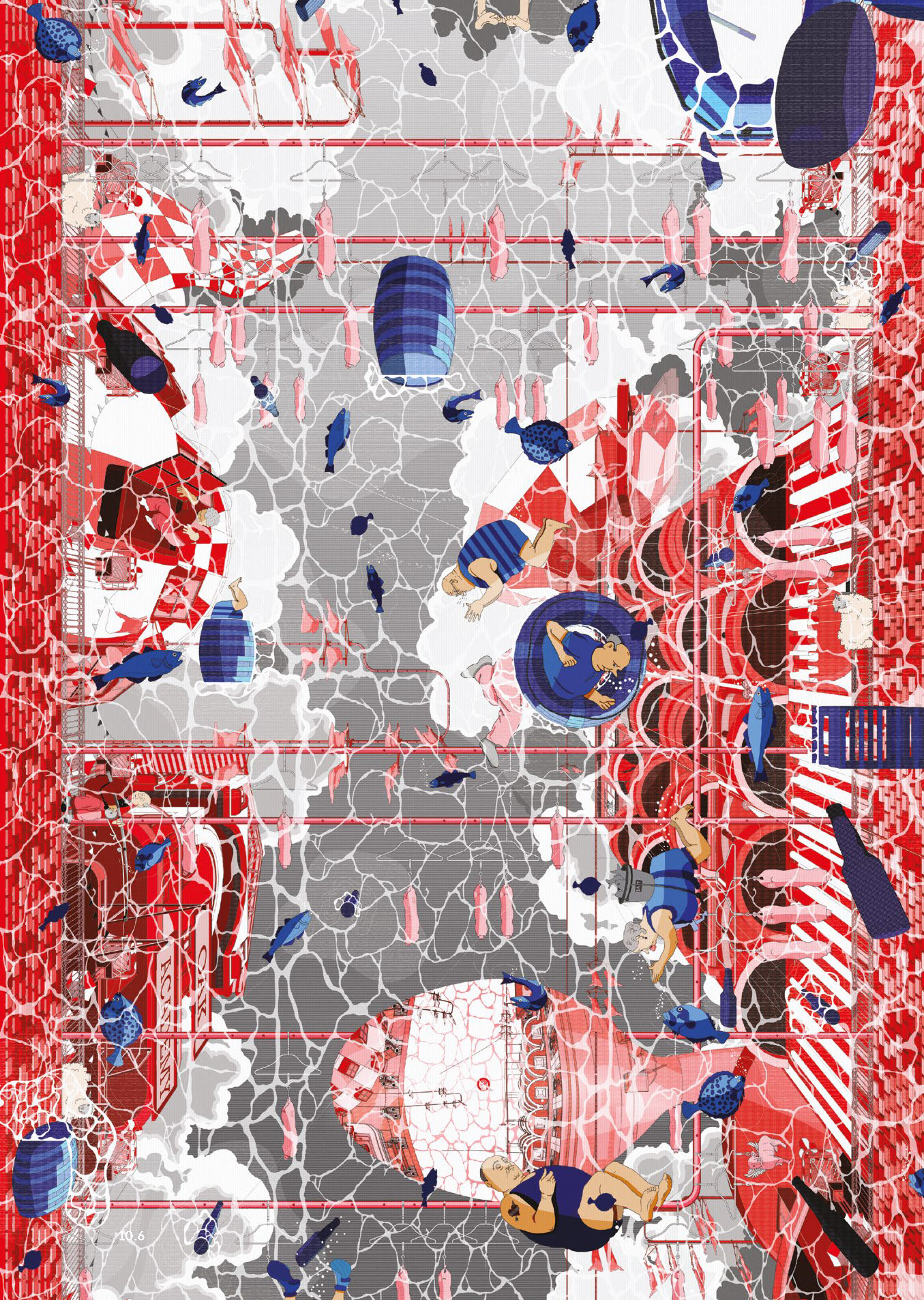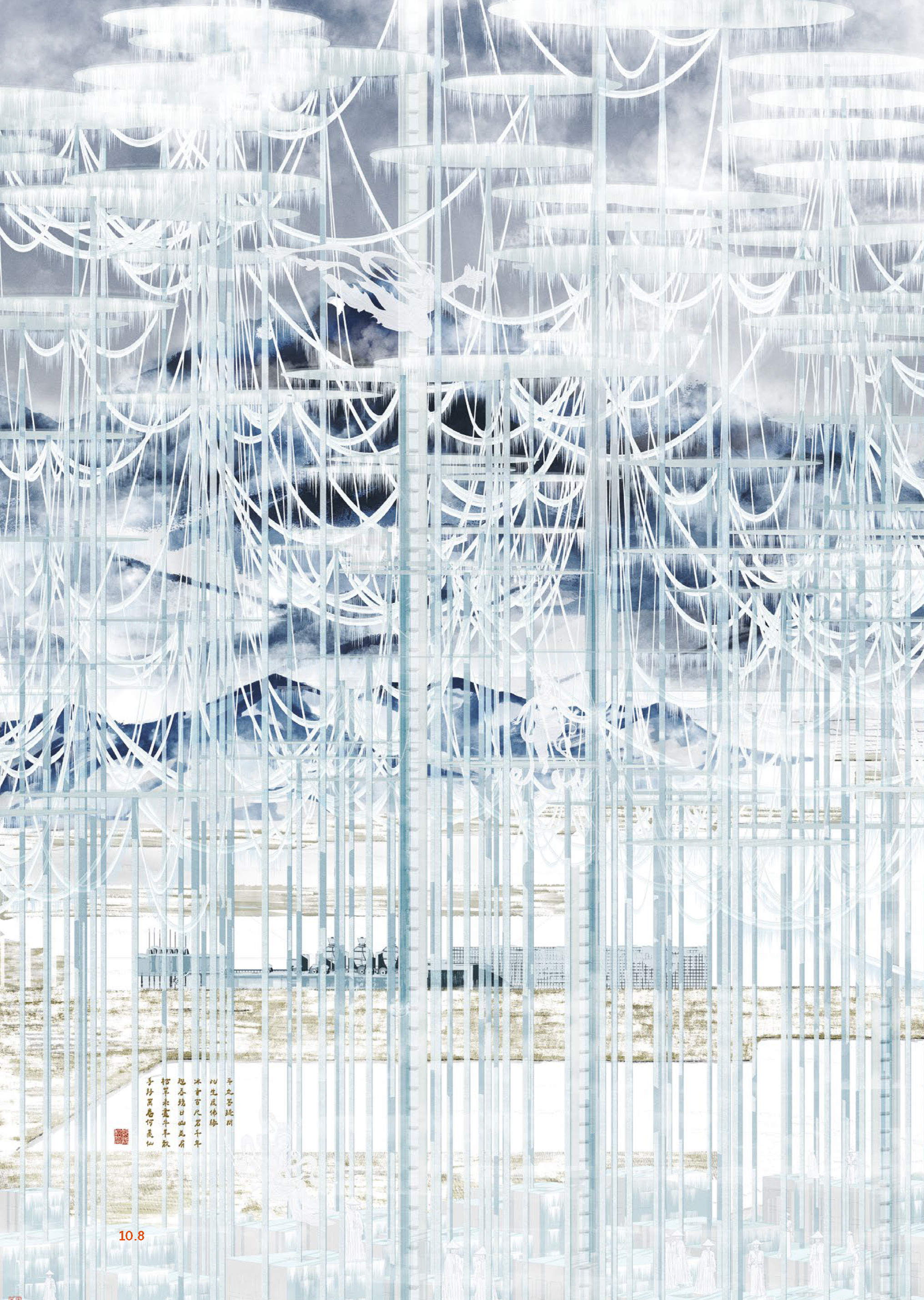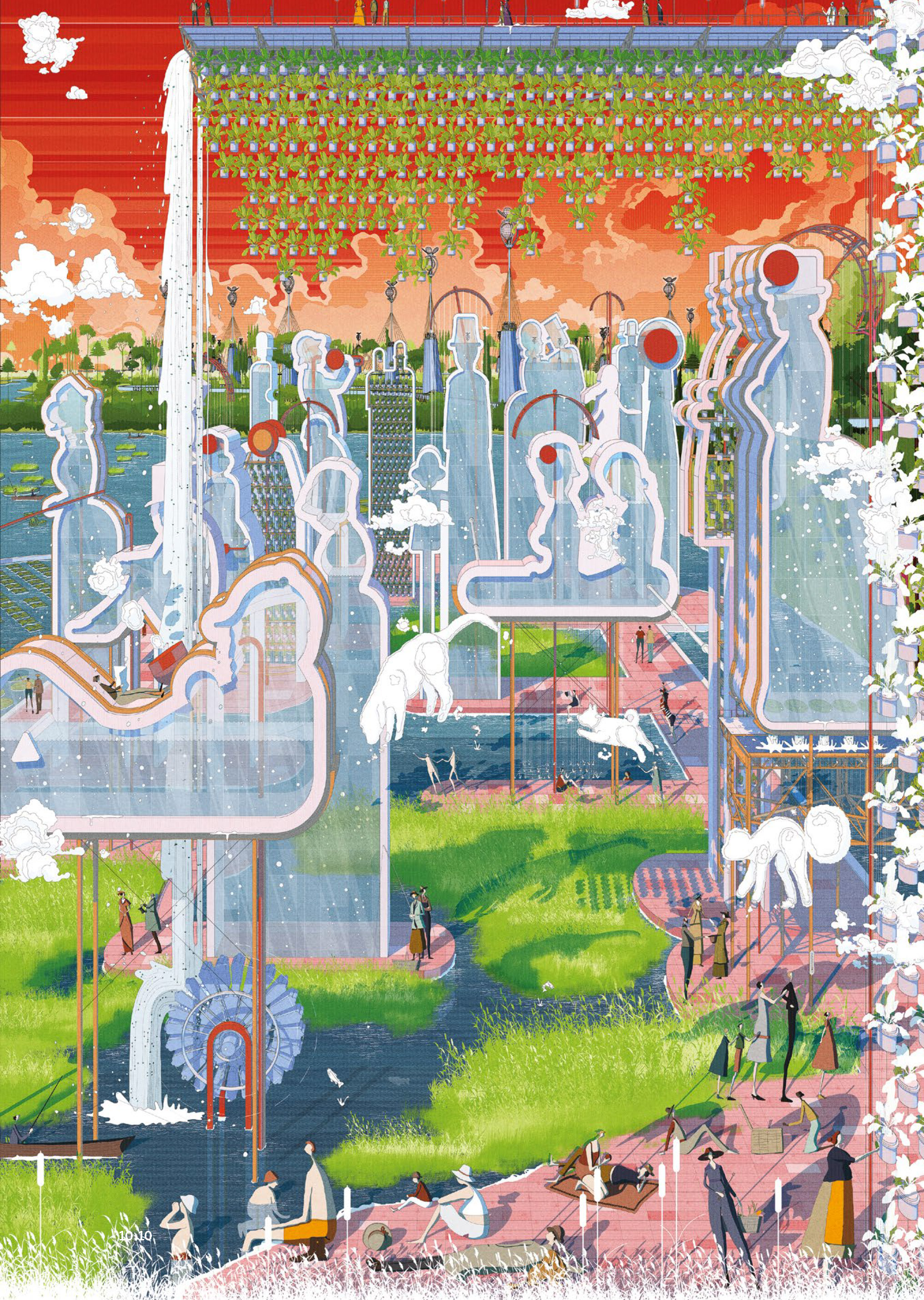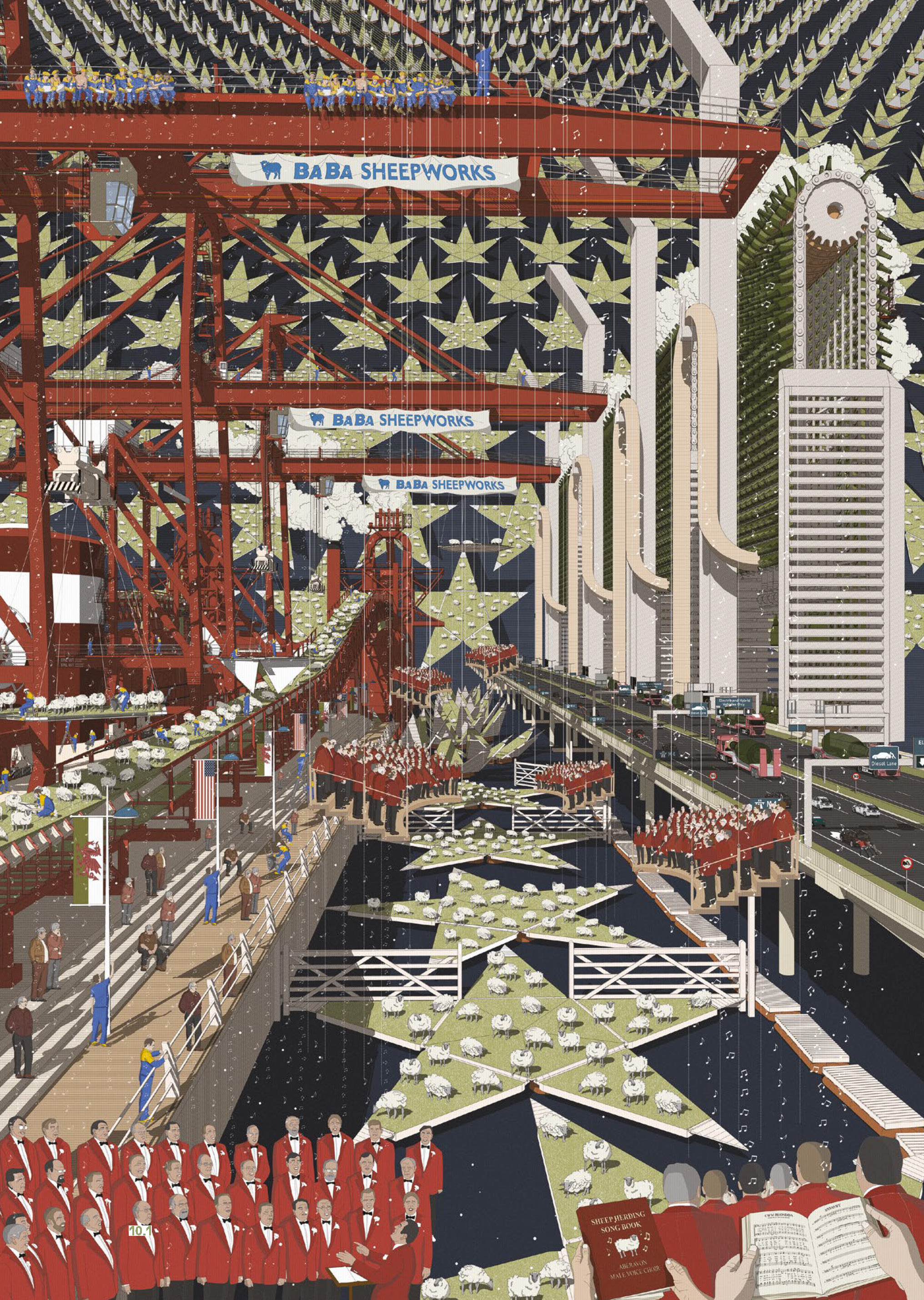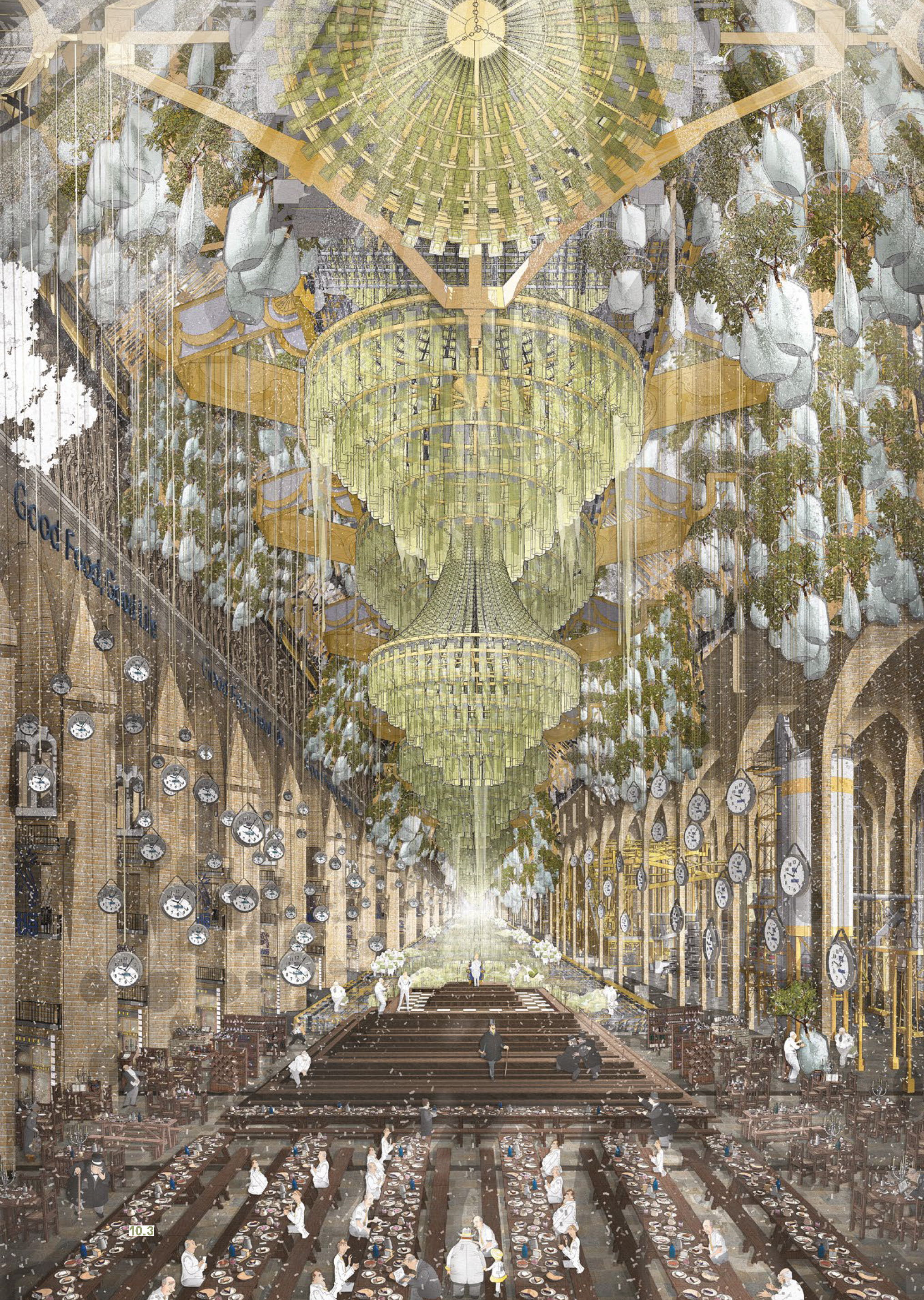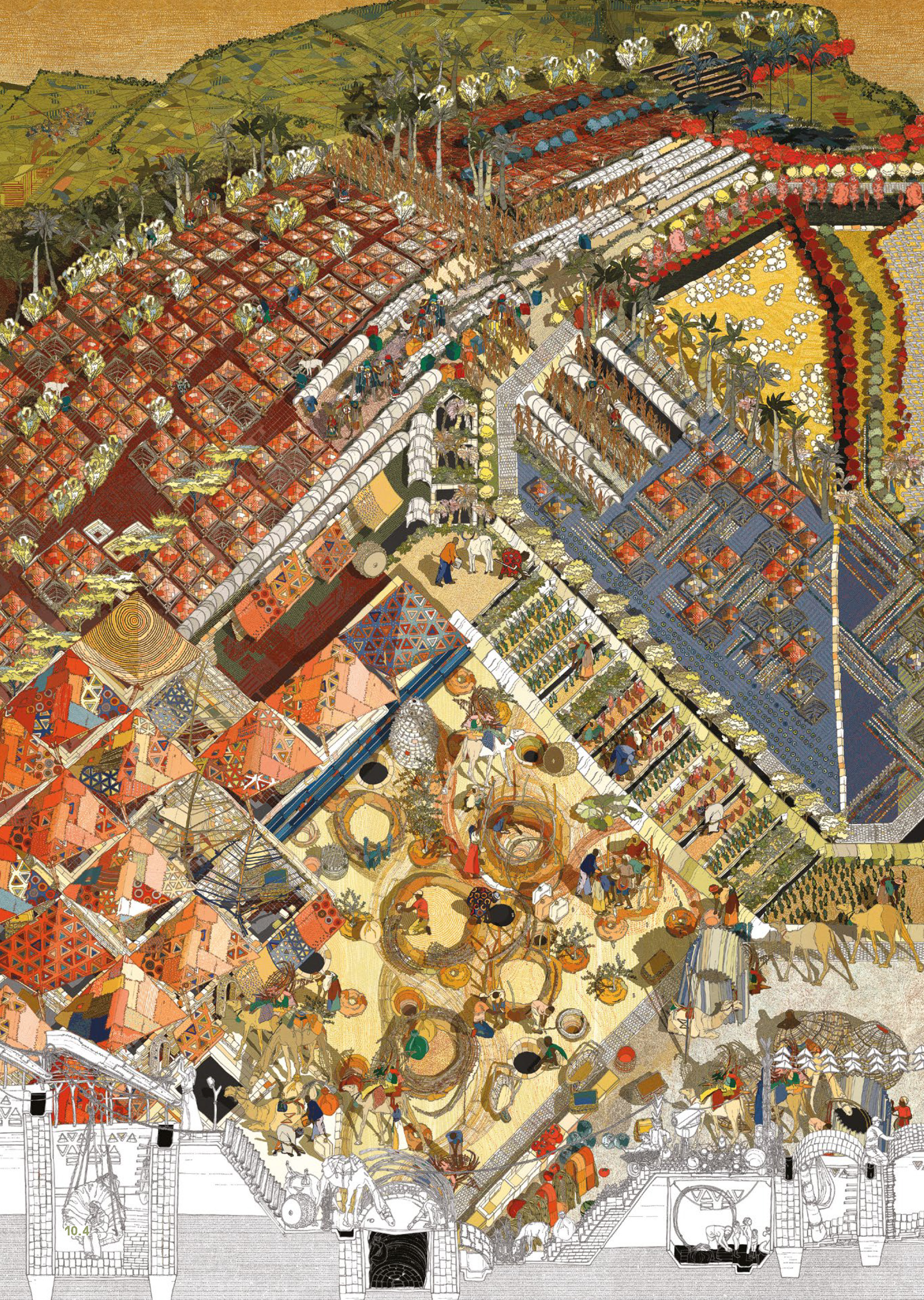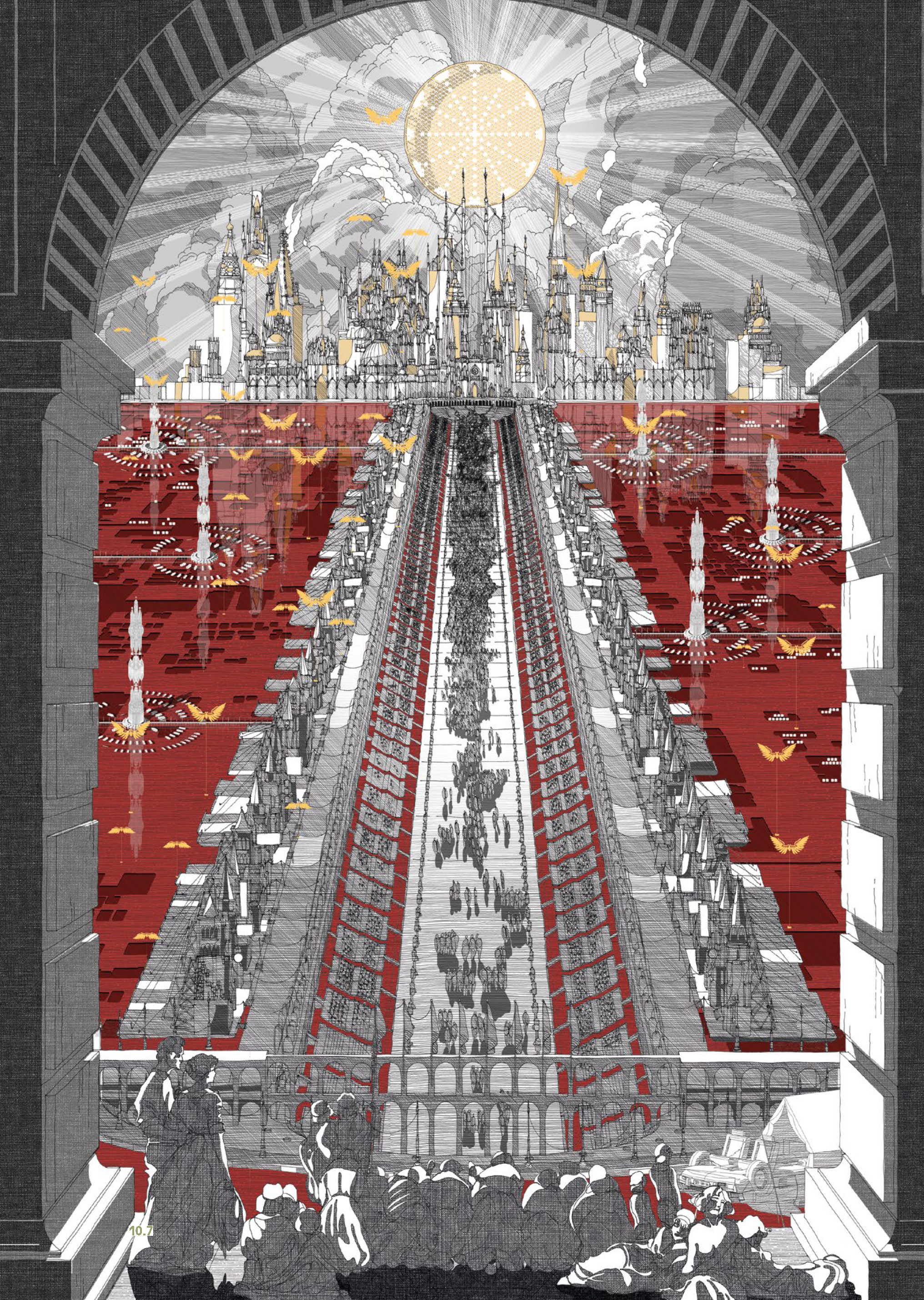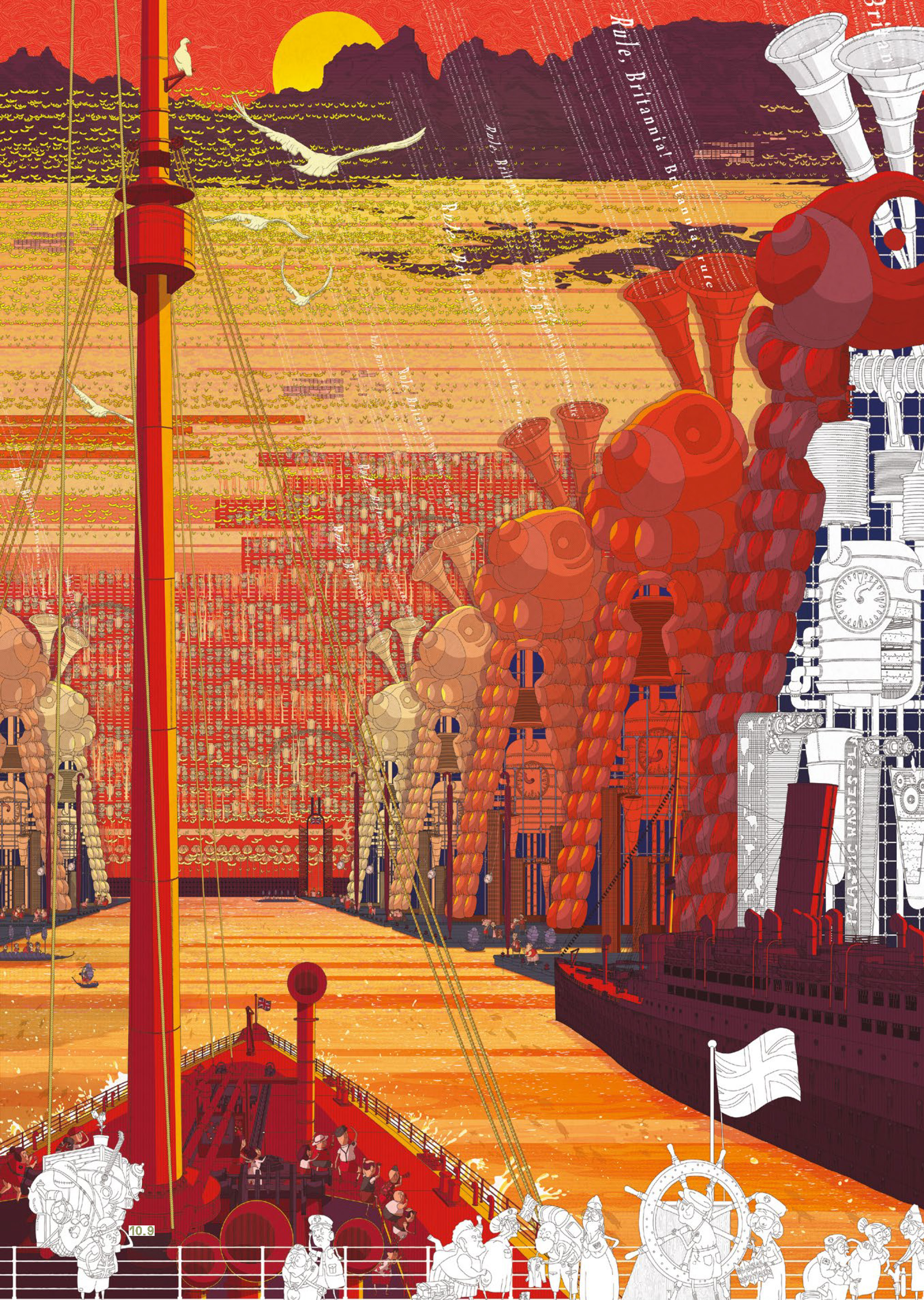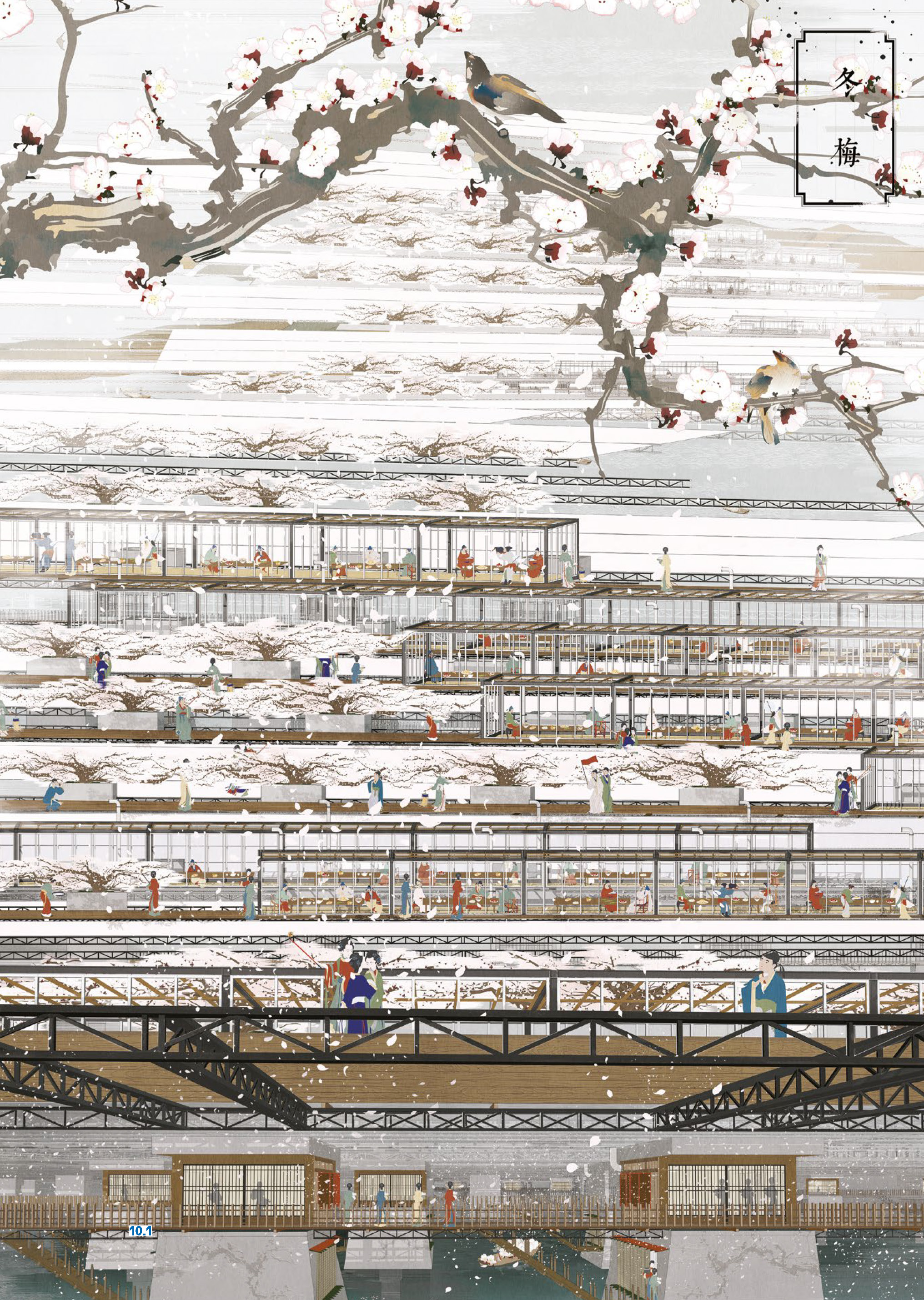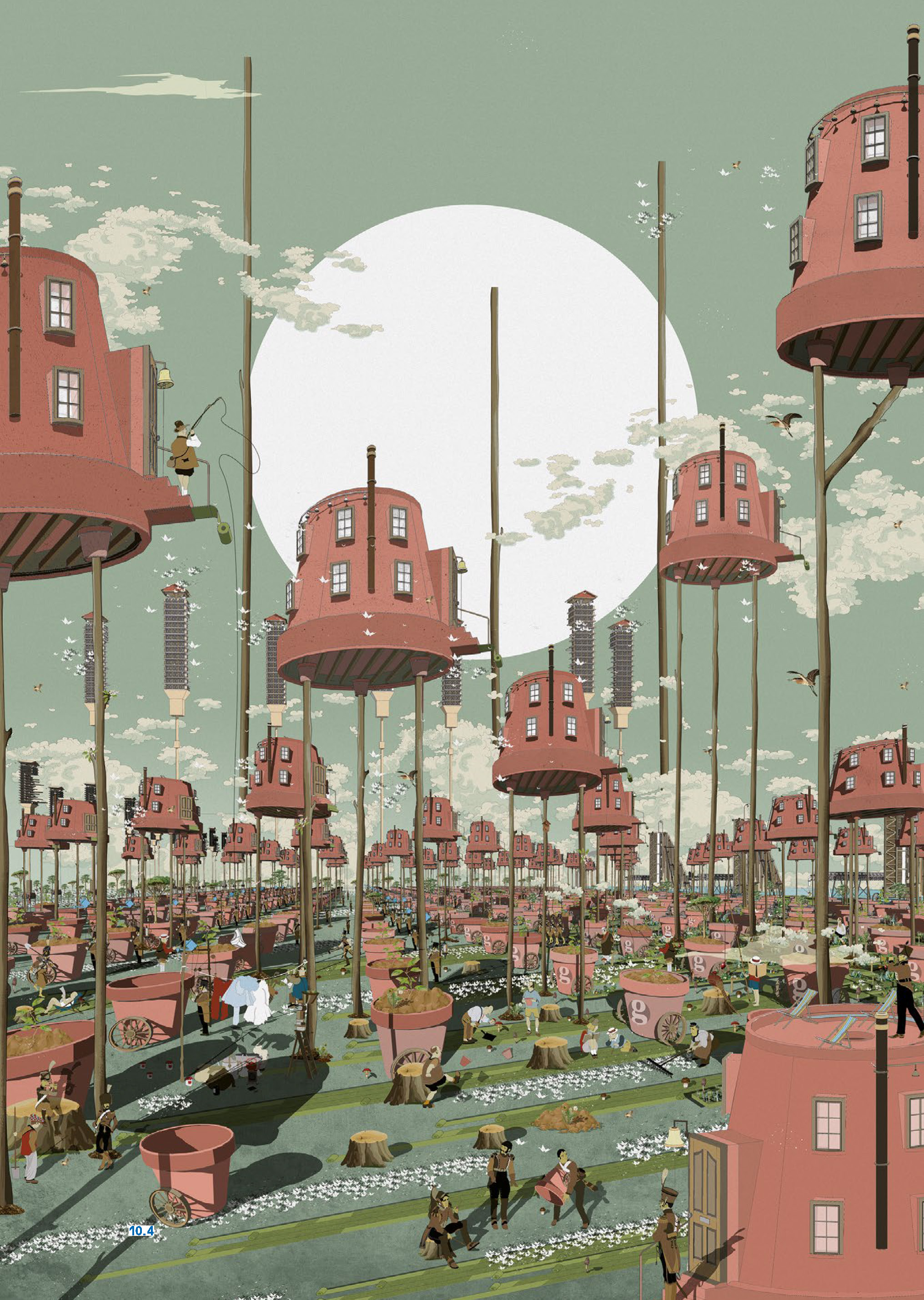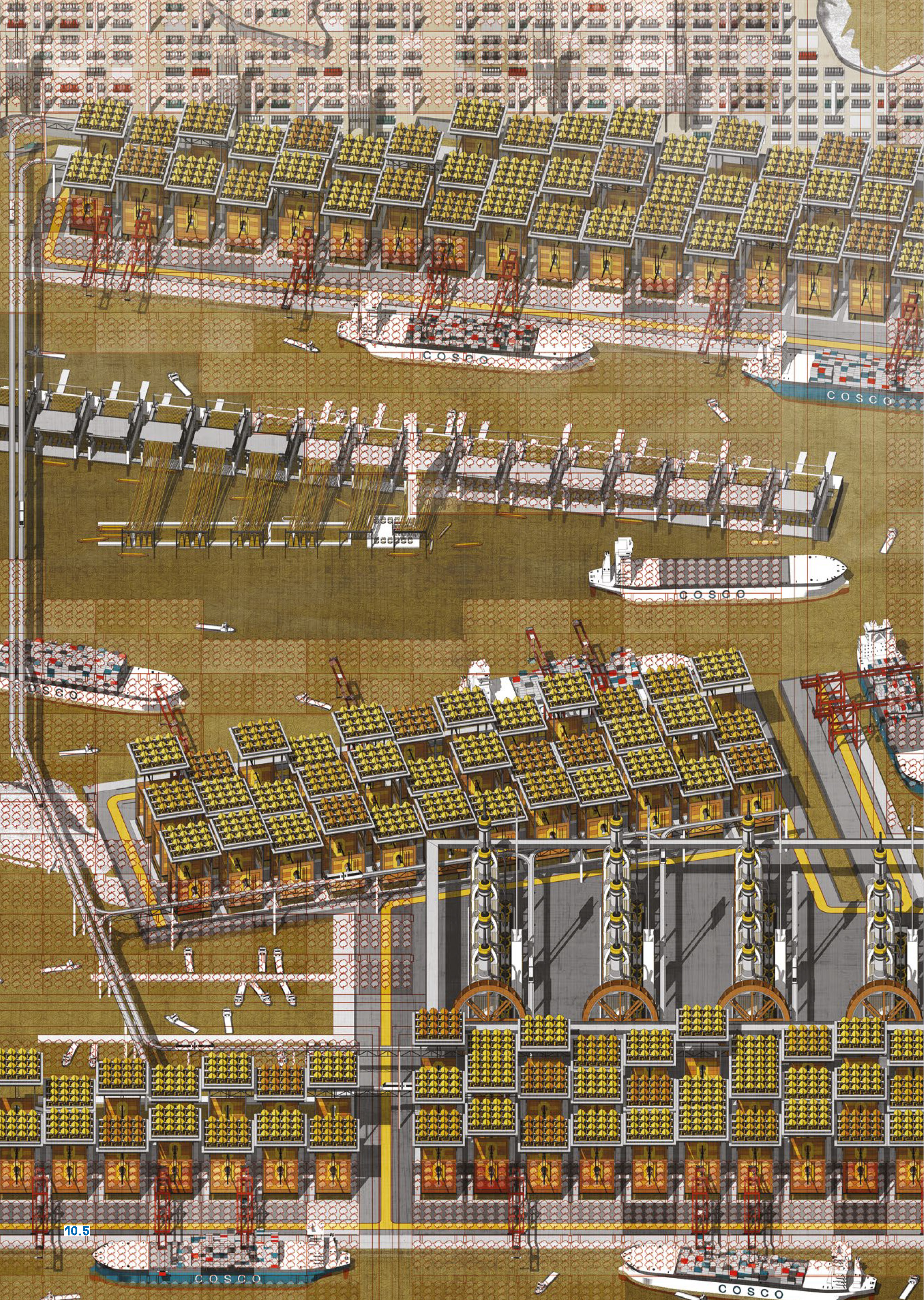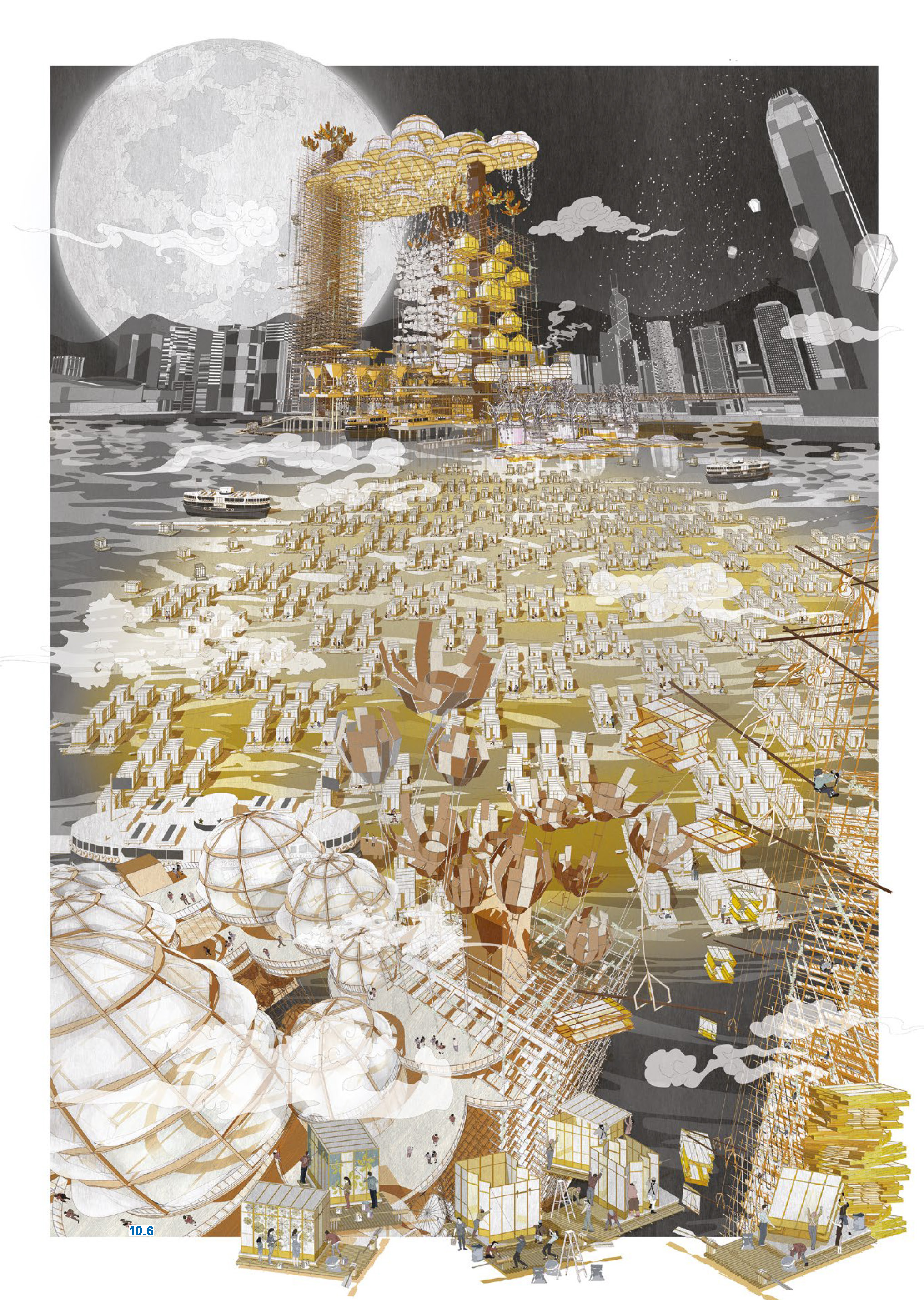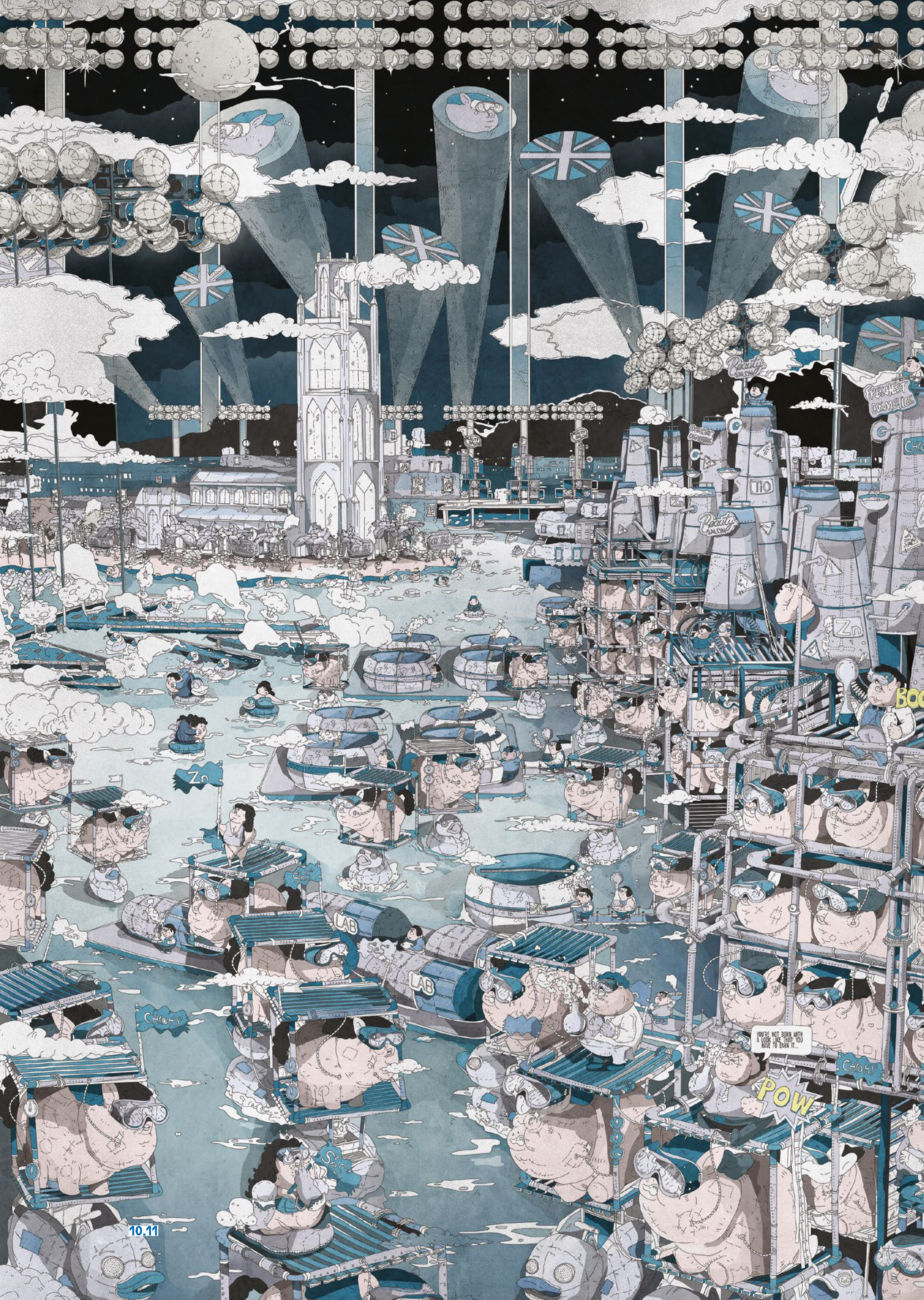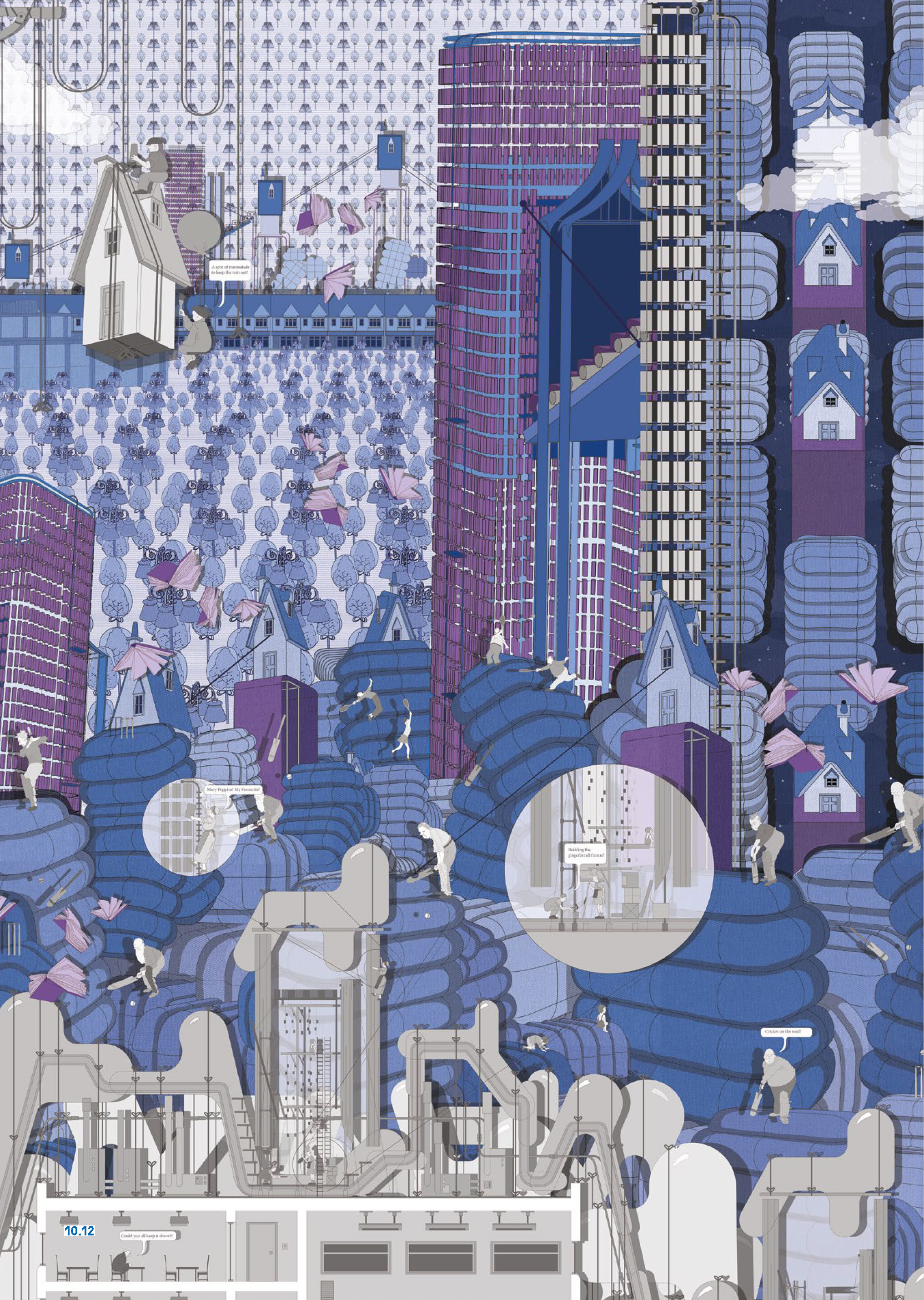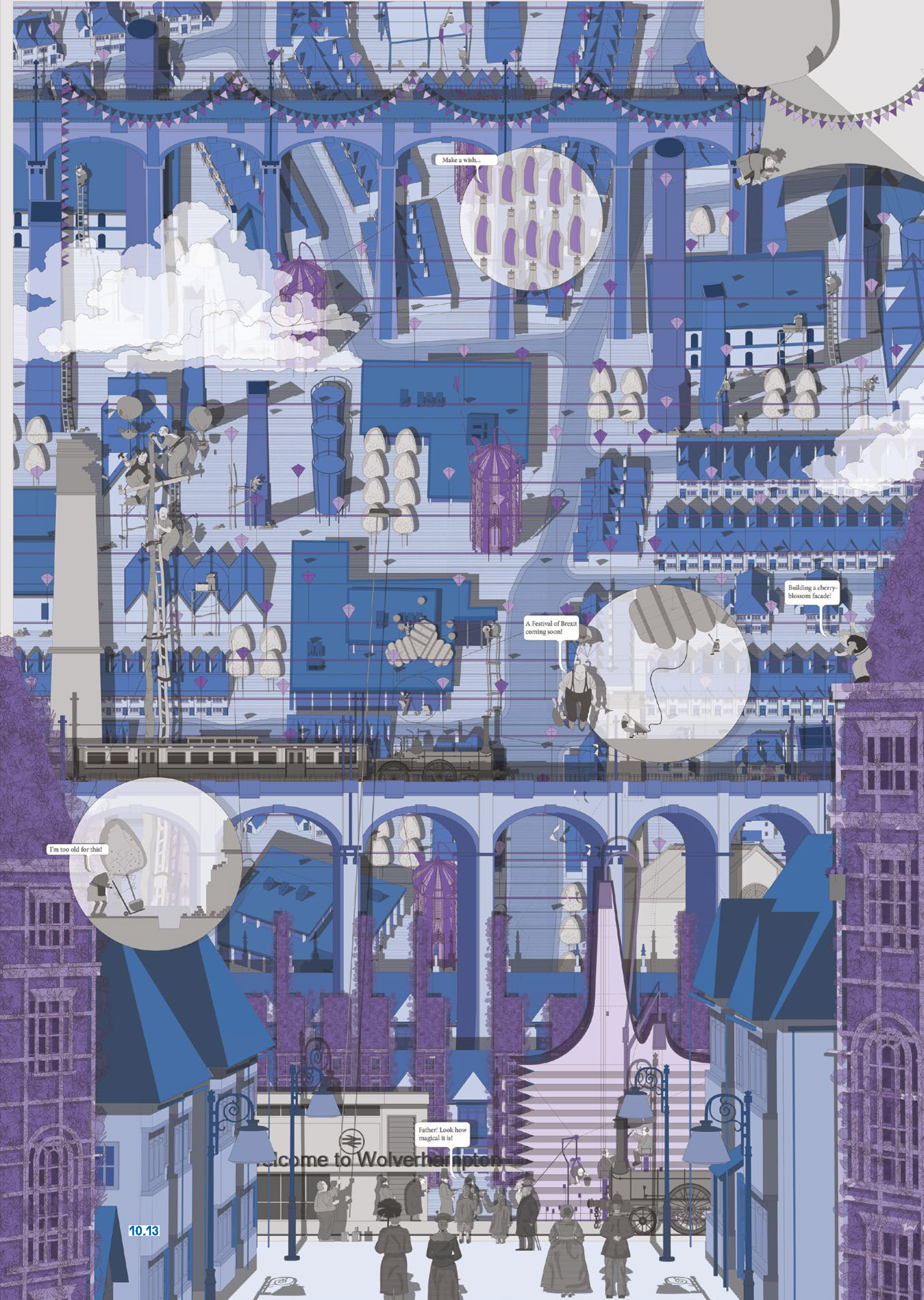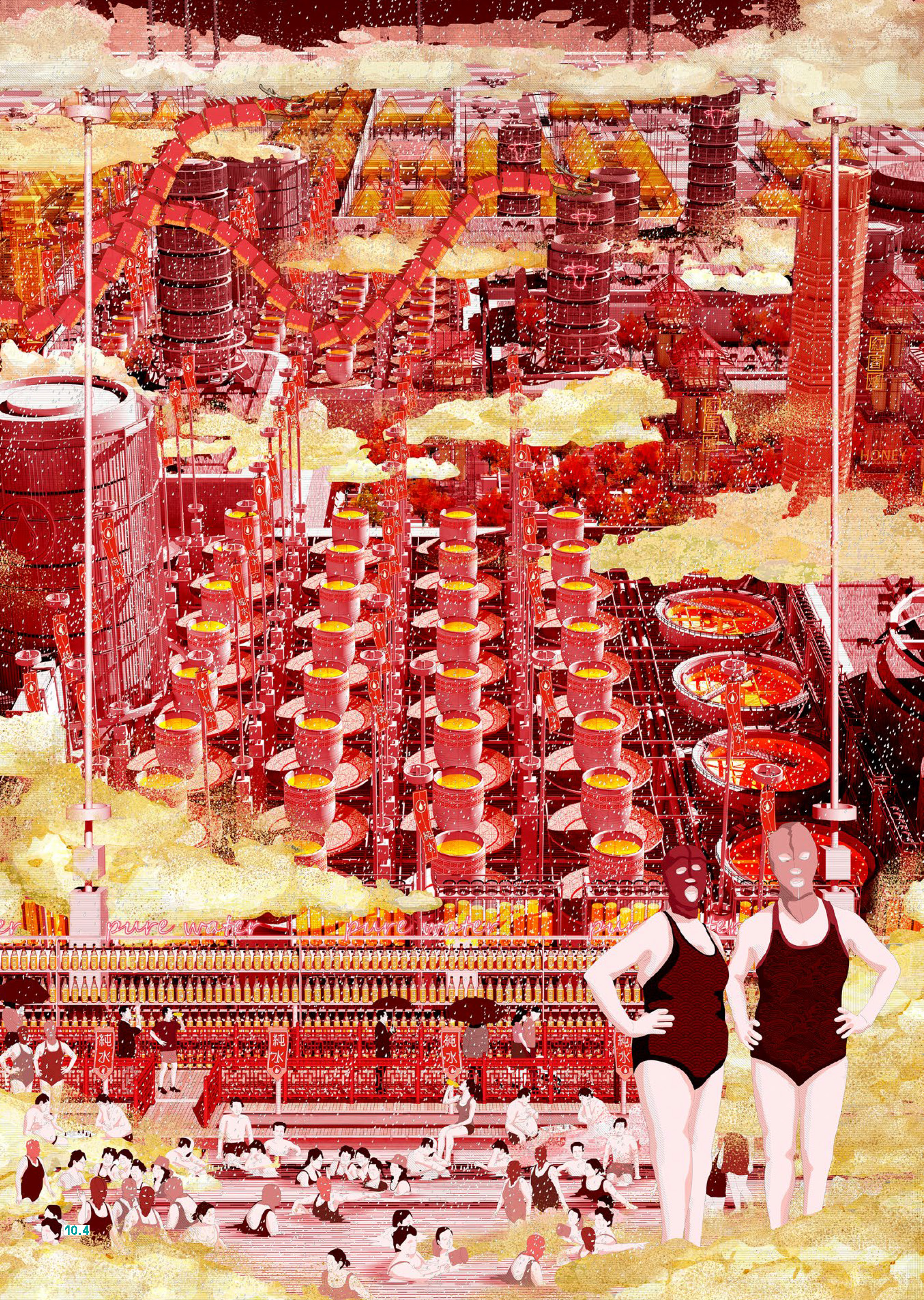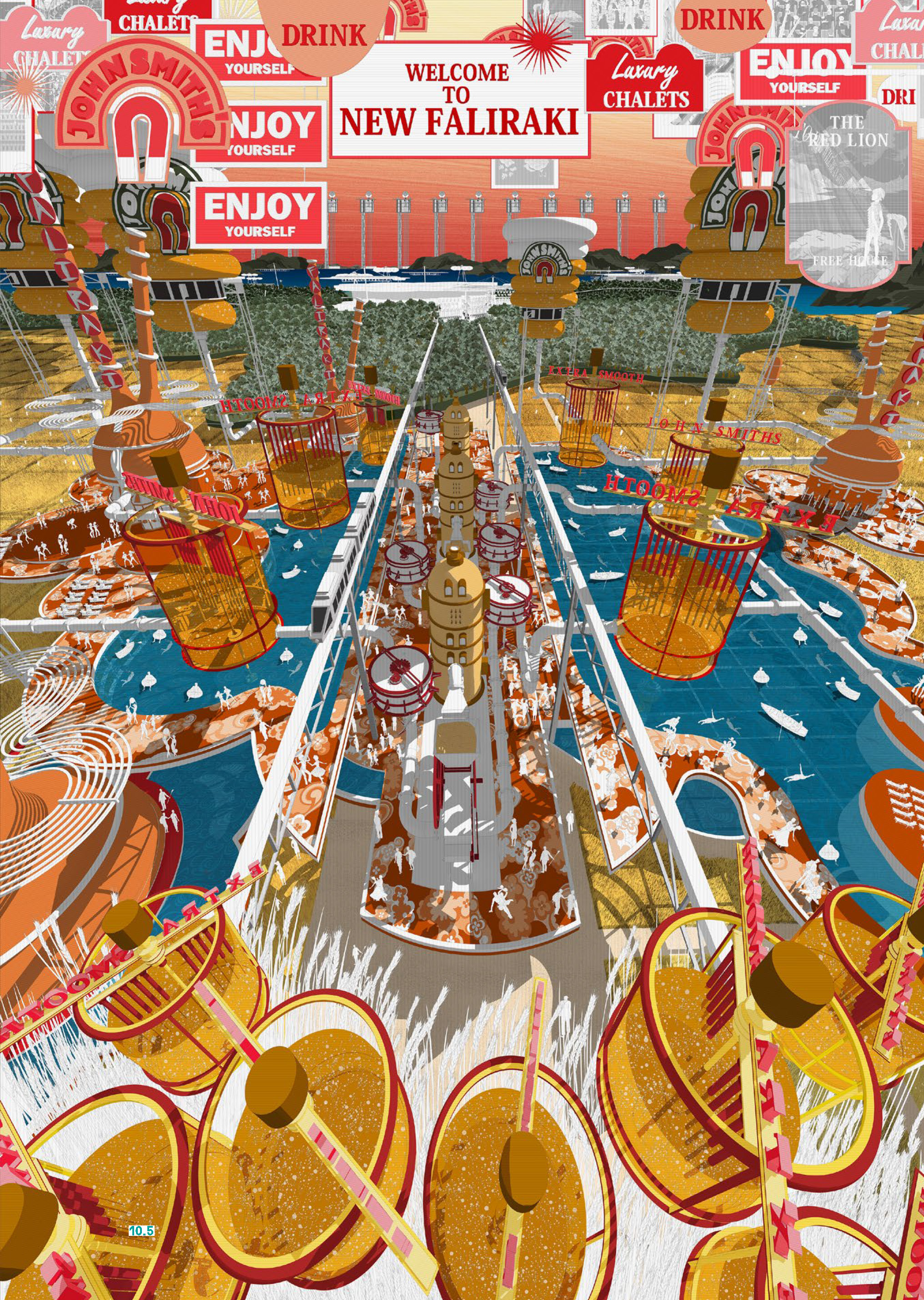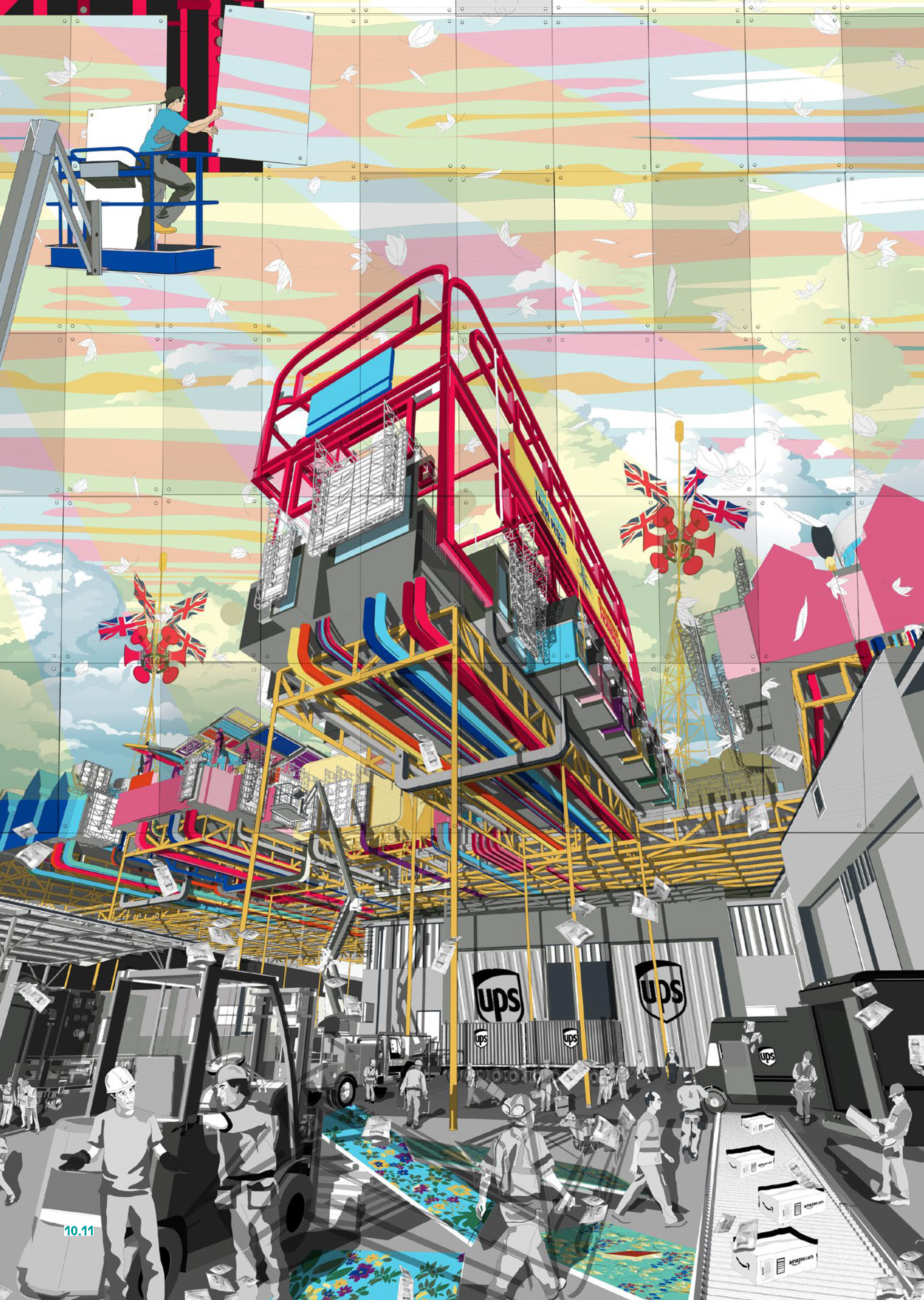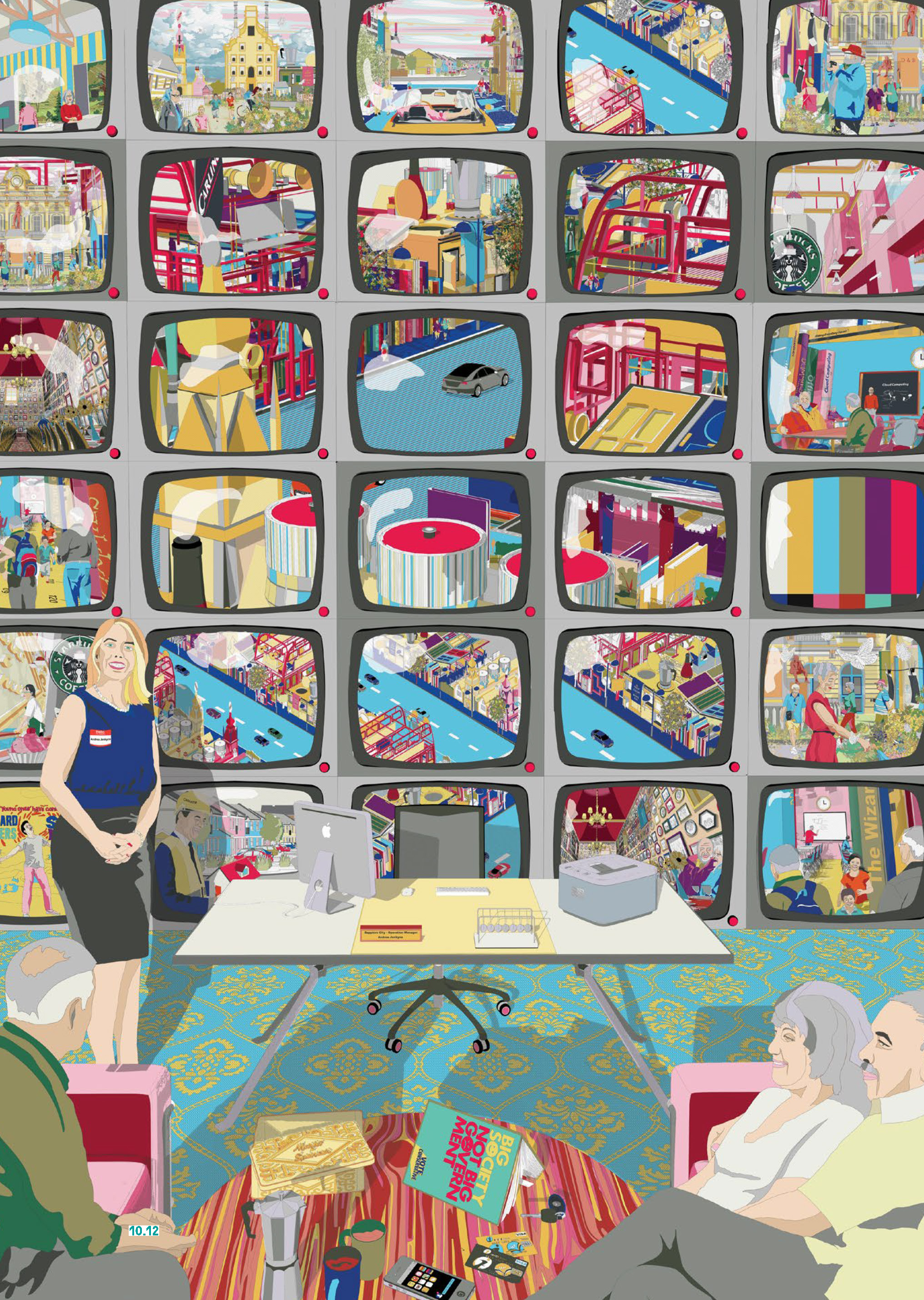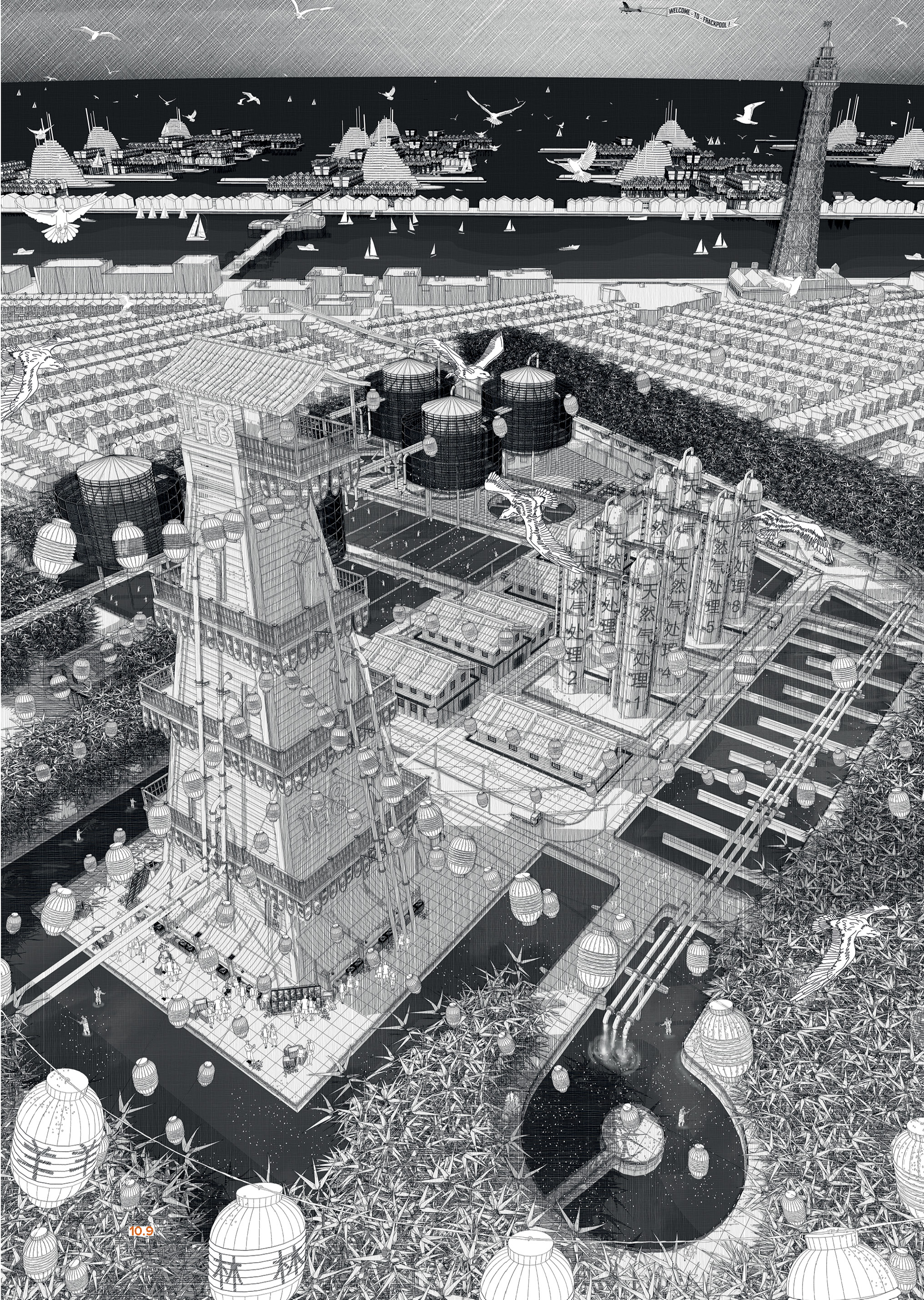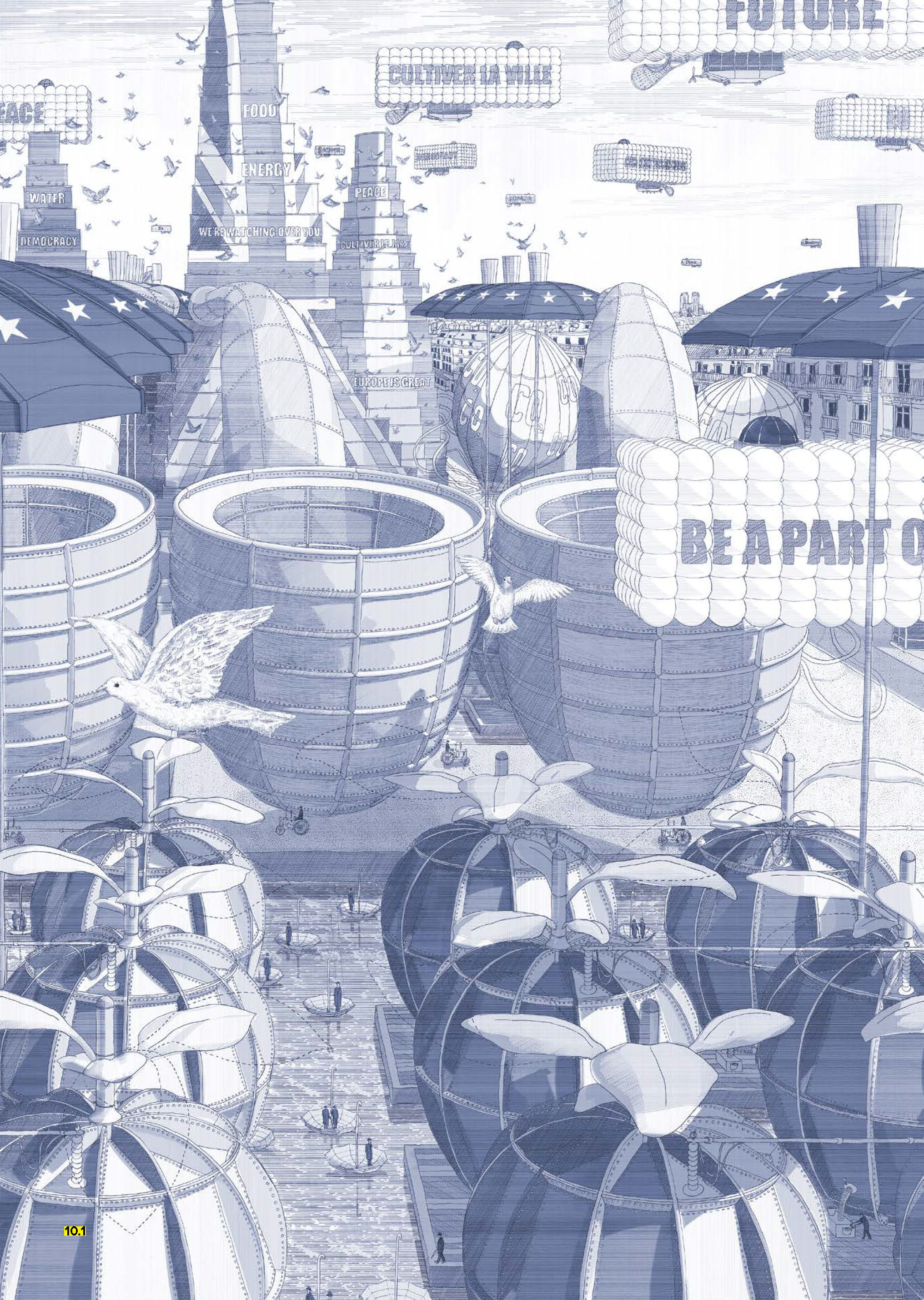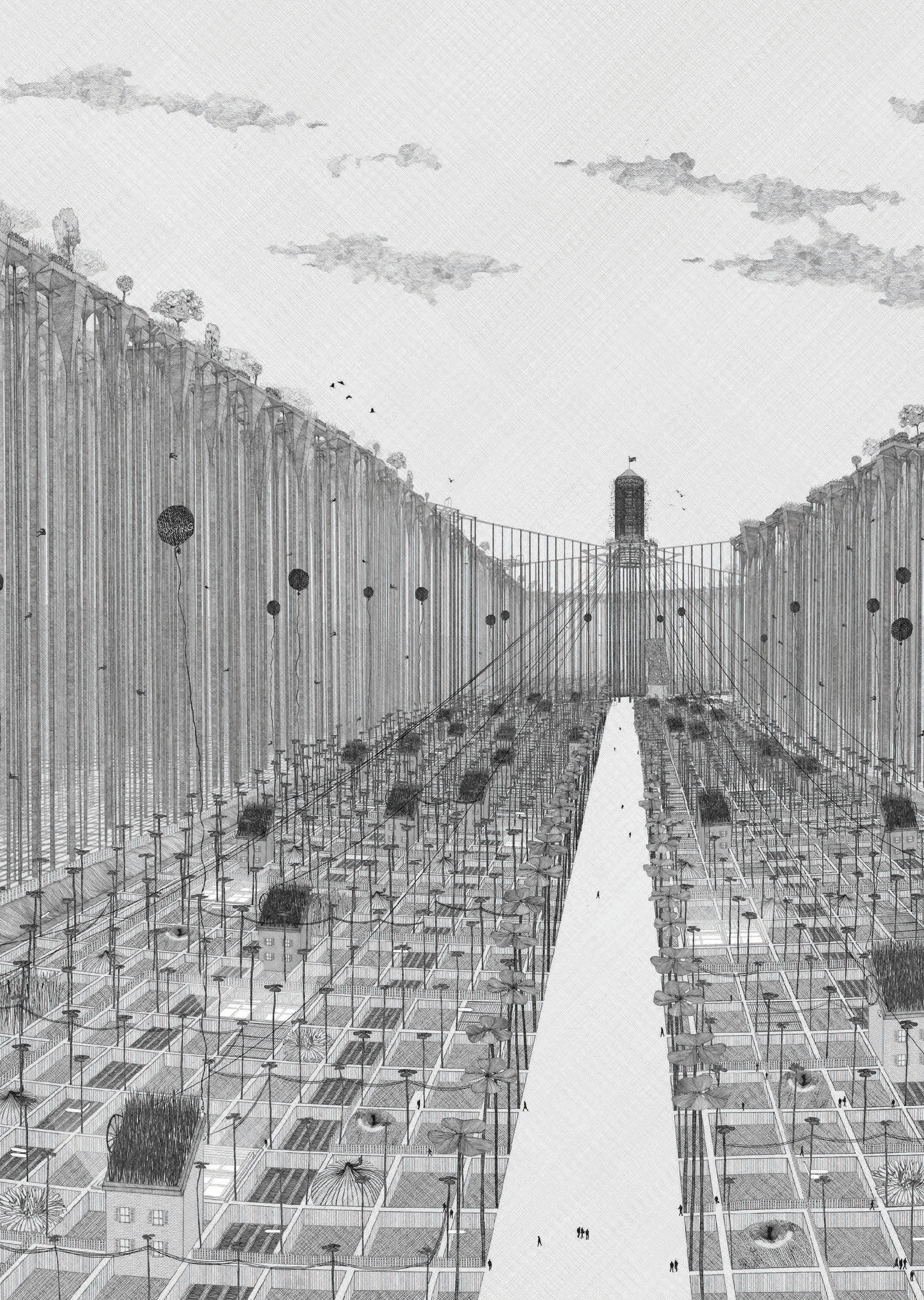↓
wow how wild, it’s almost done.
click here to enter the plenaes archive
[through the singularity - narrative conjectures beyond the zero hour]
click here to enter the plenaes archive
[through the singularity - narrative conjectures beyond the zero hour]
Text
Notes
Wittgenstein Plays Chess with Marcel Duchamp – Amit Dutta
“one does not realize something because it is always before ones eyes”
Our memory serves to allow us a comparison of an object to the personal past of such an item. Truth is easy to understand if you do away with preconceptions about where it is supposed to lie.
“Architecture, as philosophy, is actually more of a kind of work on oneself. On one’s own conception. On the way one sees things, and what one demands of them.”
Was really about perceptions of reality, ways of seeing the world, and truth.
Folding Beijing – Hao Jingfang
Nice character introduction at the beginning, introducing motivations and traits. Music is power… once again. First hooks you into the story, then doubles back and gives the setup.
“I’ll just stick to unemployment. I’m sure you understand the concept,” Lao Ge continued. “As the cost of labor goes up and the cost of machinery goes down, at some point, it’ll be cheaper to use machines than people. With the increase in productivity, the GDP goes up, but so does unemployment. What do you do? Enact policies to protect the workers? Better welfare? The more you try to protect workers, the more you increase the cost of labor and make it less attractive for employers to hire people. If you go outside the city now to the industrial districts, there’s almost no one working in those factories. It’s the same thing with farming. Large commercial farms contain thousands and thousands of acres of land, and everything is automated so there’s no need for people. This kind of automation is absolutely necessary if you want to grow your economy—that was how we caught up to Europe and America, remember? Scaling! The problem is: Now you’ve gotten the people off the land and out of the factories, what are you going to do with them? In Europe, they went with the path of forcefully reducing everyone’s working hours and thus increasing employment opportunities. But this saps the vitality of the economy, you understand?
“The best way is to reduce the time a certain portion of the population spends living, and then find ways to keep them busy. Do you get it? Right, shove them into the night. There’s another advantage to this approach: The effects of inflation almost can’t be felt at the bottom of the social pyramid. Those who can get loans and afford the interest spend all the money you print. The GDP goes up, but the cost of basic necessities does not. And most of the people won’t even be aware of it.”
He felt that he had approached some aspect of truth, and perhaps that was why he could catch a glimpse of the outline of fate. But the outline was too distant, too cold, too out of reach. He didn’t know what was the point of knowing the truth. If he could see some things clearly but was still powerless to change them, what good did that do? In his case, he couldn’t even see clearly. Fate was like a cloud that momentarily took on some recognizable shape, and by the time he tried to get a closer look, the shape was gone. He knew that he was nothing more than a figure. He was but an ordinary person, one out of 51,280,000 others just like him. And if they didn’t need that much precision and spoke of only 50 million, he was but a rounding error, the same as if he had never existed.
“I’ll just stick to unemployment. I’m sure you understand the concept,” Lao Ge continued. “As the cost of labor goes up and the cost of machinery goes down, at some point, it’ll be cheaper to use machines than people. With the increase in productivity, the GDP goes up, but so does unemployment. What do you do? Enact policies to protect the workers? Better welfare? The more you try to protect workers, the more you increase the cost of labor and make it less attractive for employers to hire people. If you go outside the city now to the industrial districts, there’s almost no one working in those factories. It’s the same thing with farming. Large commercial farms contain thousands and thousands of acres of land, and everything is automated so there’s no need for people. This kind of automation is absolutely necessary if you want to grow your economy—that was how we caught up to Europe and America, remember? Scaling! The problem is: Now you’ve gotten the people off the land and out of the factories, what are you going to do with them? In Europe, they went with the path of forcefully reducing everyone’s working hours and thus increasing employment opportunities. But this saps the vitality of the economy, you understand?
“The best way is to reduce the time a certain portion of the population spends living, and then find ways to keep them busy. Do you get it? Right, shove them into the night. There’s another advantage to this approach: The effects of inflation almost can’t be felt at the bottom of the social pyramid. Those who can get loans and afford the interest spend all the money you print. The GDP goes up, but the cost of basic necessities does not. And most of the people won’t even be aware of it.”
https://uncannymagazine.com/article/folding-beijing-2/
Down To Earth – Bruno Latour
The main proposition is that a large segment of the ruling class (read: elites) have decided that it was pointless to act as though history were going to continue to move toward a common horizon. For reasons of increasing inequalities, deregulation, climate change etc – we are no longer moving towards a world in which all humans could prosper equally. This class has stopped purporting to lead us, and instead is sheltering themselves, repudiating the concept of a common world we can share. To resist this loss Latour calls us to LAND somewhere and ORIENT ourselves towards the ways in which both the affects and the stakes of public life shall be redefined – to come down to earth if you will.
Great Operating Statement: “As the author lacks any authority in political science, he can only offer his readers the opportunity do disprove this hypothesis and look for better ones”
The withdrawal from the paris climate accords proved that the climate question is at the heart of all geopolitical issues today, and that it is tied to questions of injustice and inequality directly.
COP21 showed that there is not enough of earth to sustain the modernization and globalization plans of all member countries. Begging the question, do we recalibrate or look for an escape route?
The typically definition of migrant or refugee as one from the outside is growing ever closer to those on the inside who are equally left behind by their countries and governments. We are facing an ordeal common to all of finding oneself deprived of land (earth).
To reassure migrants and come together we must carry out two complementary movements that the ordeal of modernization has made contradictory: attaching oneself to a particular patch of soil /and/ having access to the global world on the other. It is said one has to choose between the two, but current history may bring this apparent contradiction to an end.
Look into Donna Haraway’s Worlding - Kathleen Stewart (2012) provides a definition of worlding referring to the "affective nature" of the world in which "non-human agency" comprising of "forms, rhythms and refrains" (for example)reach a point of "expressivity" for an individual and develop a sense of "legibility". Through this process a particular 'world' emerges for the individual through their engagement with a number of interrelated phenomena. Anderson and Harrison expand on worlding further: "...the term 'world' does not refer to an extant thing but rather the context or background against which particular things show up and take on significance: a mobile but more or less stable ensemble of practices, involvements, relations, capacities, tendencies and affordances." (https://newmaterialism.eu/almanac/w/worlding.html)
Read more about Haraway’s Terrapolis - It is clear when Haraway is sketching out her version of worlding that she is keen to separate her use of the term from that of Heidegger's: "Finished once and for all with Kantian globalizing cosmopolitics and grumpy human-exceptionalist Heideggerian worlding, Terrapolis is a mongrel word composted with a mycorrhiza of Greek and Latin rootlets and their symbionts" (Haraway, 2016, p. 11). Worlding for Haraway manifests itself in the SF sense: "a risky game of worlding and storying; it is staying with the trouble." (Haraway, 2016, p. 13). (https://newmaterialism.eu/almanac/w/worlding.html)
The shift from a local to a global viewpoint ought to mean multiplying viewpoints, registering a greater number of varieties, taking into account a larger number of beings, cultures, phenomena, organisms, and people. Yet what has happened is the opposite – the ubiquitization of entirely provincial viewpoints, products, cultures, etc – and the unrelenting application of these across the world.
The large issue is that those who oppose modernization or globalization are instantly labeled archaic or obscurantist, deemed by the elites to have illegitimate positions.
“In the end, what counts is not knowing whether you are for or against globalization, for or against the local; all that counts is understanding whether you are managing to register, to maintain, to cherish a maximum number of alternative ways of belonging to the world.” – I feel that in a way, if one subscribes to this, the hegemonic natures of globalization as singular applicable viewpoint oriented in contrast to the provincials (populists?) will fall by default.
This text follows a convention according to which the lower-case term “earth” corresponds to the traditional framework of human activity (human beings in nature), while the upper-case “Earth” indicates a power to act in which we begin to recognize, even if it has not been fully instituted, something like a political entity.
The “Othering” of populations is perhaps the most dangerous affect of the elites ignorance of the New Climatic Regime. The elites have taken seriously that their dominance was threatened and have decided to dismantle the ideology of a planet shared by all.
“The elites have been so thoroughly convinced that there would be no future life for everyone that they have decided to get rid of all the burdens of solidarity as fast as possible – hence deregulation; they have decided that a sort of gilded fortress would have to be built for those who would be able to make it through – hence the explosion of inequalities; and they have decided that, to conceal the crass selfishness of such a flight out of the shared world, they would have to reject absolutely the threat at the origin of this headlong flight – hence the denial of climate change.”
“This hypothesis would make it possible to explain how globalization-plus has become globalization-minus. Whereas until the 1990s one could (provided that one profited from it) associate the horizon of modernization with the notions of progress, emancipation, wealth, comfort, even luxury, and above all rationality, the rage to deregulate, the explosion of inequalities, the abandonment of solidarities have gradually associated that horizon with the notion of an arbitrary decision out of nowhere in favor of the sole profit of the few. The best of worlds has become the worst.”
^ all this action on the part of the ‘elites’ is not entirely conscious, but at some level at least whether the intentions were there or not have little bearing on the effects of the actions. Subconsciously it is undeniable that the awareness was there, and it is (sadly) understandably natural/predictable to act within ones self-interest.
As a defense of the populists (trump base), these people have been coldly betrayed by those who have given up the idea of actually pursuing the modernization of the planet with everyone because they knew such a task was impossible. Before accusing these people of no longer believing in anything, one must understand the effect that such a betrayal has on one’s ability to trust. It has largely been abandoned by the wayside.
Knowledge and truth do not exist in a vacuum. Facts remain robust only when they are supported by a common culture, by institutions that can be trusted, by a more or less decent public life. By extension then, we can assume the possibility of a reorganization of our core truths based upon societal shift. It would be possible to wipe away our notions of territorialism and find a new truth not under capitalism or simply more harmoniously with other terrestrials.
Read about Post-Truth Politics
The local-minus is no longer the same Local. It is a retrospective invention consisting of the leftovers of modernization, but nevertheless it attracts as powerfully as globalization (plus or minus). Because of this gap and stalemate the modernization front no longer exists. The shared horizon is gone, and with it the organizing arrow of history that it supported for so long.
“It is as if the expression modern world had become an oxymoron. Either it is modern, but has no world under its feet, or else it is a true world, but will not be modernizable. We have reached the end of a certain historical arc.”
It is at this juncture we find ourselves today. We are too disoriented to array the positions along the axis that went from the old to the new, from the local to the global, and we are incapable of naming what the third attractor is or describing it in such a way that allows us to reorganize our society in pursuit of it. (it is something in the realm of climate – posit: terrestrialism)
“Trumpian politics is not “post-truth,” it is post-politics – that is, literally, a politics with no object, since it rejects the world that it claims to inhabit. The choice is mad, but it is comprehensible. The united states saw the obstacle and simply refused to proceed, like a horse refusing to jump – at least for the time being.”
The terrifying impression that politics has been emptied of its substance, that it is not engaged with anything at all, that it no longer has any meaning or direction, that it has become literally powerless as well as senseless, has no cause other than this gradual revelation: neither the global nor the local has any lasting material existence.
Terrestrial as a political actor is representative of the way in which the earth is now participating in history. It is no longer an object to be possessed, it is fighting back and concerning itself with our operations.
This concept of the Terrestrial has been crossed consistently by the green parties already, seeking to orient public life towards this third axis. An in some sense they have succeeded, it is impossible to think of any material object that has not taken on an ecological dimension – even if it is willingly ignored. Ruefully they are often put in opposition to modernization, and therefore have their political wings clipped from the outset. But at the same time they propose things too novel for the right, and so are left in a weird middle ground that can’t be supported by either half.
Look into Anthony Giddens: Beyond Left and Right, the future of radical politics
“By what miracle could this operation of reorientation take place in a world where all the efforts to “escape from the left/right opposition” or “go beyond the division” or “look for a third way” have failed? For a simple reason that is bound up with the very notion of orientation. Despite the appearances, what counts in politics are not attitudes, but the form and weight of the world to which these attitudes have the function of reacting. Politics has always been oriented toward objects, stakes, situations, material entities, bodies, landscapes, places. What are called the values to be defended are always responses to the challenges of a territory that it must be possible to describe. This is in effect the decisive discover of political ecology: it is an object-oriented politics. Change the territories and you will also change the attitudes.
The modern/terrestrial vector is proposed as a credible and desirable alternative to the left/right dichotomy that remains so acute.
So then how do we get there? How do those who feel abandoned by the historical betrayal of upper/ruling classes and are clamoring for the security of a protected and familiar space begin to shift away from that sense of belonging? This impulse is only labeled as reactionary in contrast in the headlong flight towards modernization – if we stop fleeing then the desire for attachment must be redefined. Whereas in the local sense it means closing oneself off, in the terrestrial sense it must mean being situated but opening oneself up.
Consequently the other half must be convinced how little globalization-minus relates to access to the Globe and the world. Despite being bound to the earth and to land, the Terrestrial is also a way of worlding, in that it aligns with no borders and transcends all identities.
In this sense it solves the issue of place, the earth that globalization would require simply does not exist, yet the local perspective is much too restrictive. “There is no Earth corresponding to the infinite horizon of the Global, but at the same time the Local is much too narrow, too shrunken, to accommodate the multiplicity of beings belonging to the terrestrial world.” This is why the orientation of Local and Global along a single trajectory has been wrong from the beginning.
The crucial choice had to do with two directions of politics: “One that defines social questions in a restrictive manner, and another that defines the stakes of survival without introducing a priori differences between humans and non-humans. The choice to be made is between a narrow definition of the social ties making up a society, and a wider definition of associations that make up what have been called collectives.”
Critical to understand that global/local does not correspond with left/right. And the question of positivity or negativity is largely (neutral, irrelevant, incalculable?) on the larger scales in pursuit of modernization. But what world exactly, this progress would end up resulting in, was never explicitly understood – and the horizon of progress became a vague utopia as Earth failed to give it substance.
There is a difference between social/economically defined classes and territorially defined classes. Those defined by territories have much more agency to advocate for their own sake. With an increasingly online economy and workforce these powers of the proletariat to organize are being crippled. Latour argues that class struggles depend on a geo-logic. A revitalization of Marxists materialist analysis by obliging us to reopen the social question while intensifying it through new geopolitics.
“We need to be able to count on the full power of the sciences, but without the ideology of “nature” that has been attached to that power. We have to be materialist and rational, but we have to shift these qualities onto the right grounds.”
“The Globe grasps all things form far away, as if they were external to the social world and completely indifferent to human concerns. The Terrestrial grasps the same structures from up close, as internal to the collectivities and sensitive to human actions, to which they react swiftly” The fallacy of the Globe is represented in the Galilean conception of the universe, in that one can from the vantage point of earth perceive the planet as a falling body amongst other falling bodies translates to the necessity of having the vantage point of the universe to perceive what is happening on the planet. “The fact that one can gain access to remote sites from the earth becomes the duty to gain access to the earth from remote sites. Such a conclusion is in no way obligatory.” But it is how ‘rational’ ‘sciences’ have come to be defined. The inevitable consequence: we have begun to see less and less of what is happening on Earth.
“It is this brutal division that was to give consistency, as it were, to the illusion of the Global as the horizon of modernity. From this point on it was necessary, even if one stayed in place, to shift one’s position virtually, bag and baggage, away from subjective and sensitive positions toward exclusively objective positions, finally freed of all sensitivity – or rather of sentimentality.” It is from this vantage point that one can say earth has always varied and that it will outlast humans, making it possible to take the New Climatic Regime as an unimportant oscillation. The Terrestrial does not allow this kind of detachment.”
It is easily to fall into an understanding of nature as passive, writing off earth’s agency as a subjective illusions written onto an indifferent entity. But, how much of this is also manufactured by our worldview? Since the 17th century nature has existed in the collective consciousness largely as a factor in production, a resource, a statistical risk – it was impossible to figure the natural entities as agents or actors. Nature-as-universe had so fully obscured nature-as-process that those who were acting upon these resources were left devoid of words or concepts to describe the inevitable reactions.
As a simple example of the relational shift: “If the composition of the air we breathe depends on living beings, the atmosphere is no longer simply the environment in which living beings are located and in which they evolve; it is, in part, a result of their actions. In other words, there are not organisms on one side and an environment on the other, but a coproduction by both. Agencies are redistributed.”
Latour’s ideas come into an interesting relationship with Cixin Liu’s Dark Forest Theory the foundations of which are thus:
- All life desires to stay alive.
- There is no way to know if other lifeforms can or will destroy you if given a chance.
- Lacking assurances, the safest option for any species is to annihilate other life forms before they have a chance to do the same.
The options for survival then, are to remain secretive or acquire technology to the level such that one could immediately destroy any threat revealed to them. While the Terrestrial is clearly not in strict adherence to the ‘turtling’ strategy as described in the novels, the preoccupation of the Terrestrial with the ‘Critical Zone’ does preclude the latter option. “[The Critical Zone] is the point of departure and also the point of return for all the sciences that matter to us.”
https://vimeo.com/139097473
Latour posits we must switch from a system of production to a system of engendering. The system of engendering brings into confrontation agents, actors, animate beings that all have distinct capacities for reacting. It does not proceed from the same conception of materiality as the system of production, it does not have the same epistemology, and it does not lead to the same form of politics. It is not interested in producing goods on the basis of resources, but in engendering terrestrials – all terrestrials. It is based on the idea of cultivating attachments, operations that are more difficult because animate beings are not limited by frontiers and are constantly overlapping, embedding themselves within one another.
The withdrawal of the u.s. from the climate accords was tantamount to an invasion or occupation of all other signatory countries – if not with troops, then with co2 which we retained all rights to produce. It is a new expression of a right to dominate in the name of a modernized lebensraum.
The issue with anthropocentrism is the assumption that there is a center, either man or nature, between which we supposedly have to choose. The statement “we are earthbound, we are terrestrials amid terrestrials” does not lead to the same politics as saying “we are humans in nature” or even “we are all animals anyway”.
Partially it avoids the trap of thinking harmony with nature is possible. This is not the aim, rather than seeking agreement between all actors, we are learning of our dependencies as well as theirs on ours.
With the shift from production to engendering comes more allies in our fight. While humans may be alone in system and Earth focused on production, we are not alone in an Earth centered around living. The other Terrestrials may then be considered potential allies in our struggles against injustice.
“Fighting to join one or another utopia, the Global or the Local, does not have the same clarifying effects as fighting to land on Earth!”
“It makes no sense to force the beings animating the struggling territories that constitute the Terrestrial back inside national, regional, ethnic, or identitary boundaries; nor does it make sense to try to withdraw from these territorial struggles so as to “move to the global level” and grasp the Earth “as a whole.” The subversion of scales and of temporal and spatial frontiers defines the Terrestrial. This power acts everywhere at once, but it is not unifying. It is political, yes; but it is not statist. It is, literally, atmospheric.”
Generate Alternative Descriptions – First Step We must first take inventory, have a period of surveying, before any true recalibration can be made.
Like a Thief in Broad Daylight – Slavoj Zizek
The State of Things --
“… The function of philosophy is to corrupt the youth, to alienate them from the predominant ideologico-political order, to sow radical doubts and enable them to think autonomously. The young undergo the educational process in order to be integrated into the hegemonic social order, which is why their education plays a pivotal role in the reproduction of the ruling ideology.”
“Techno scientific progress is perceived as a temptation that can lead us into ‘going too far’ - entering the forbidden territory of biogenetic manipulations and so on, and thus endangering the very core of our humanity.”
“We live in an extraordinary era in which there is no tradition on which we can base our identity, no frame of meaningful universe which might enable us to lead a life beyond hedonist reproduction. Today’s nihilism – the reign of cynical opportunism accompanied by permanent anxiety – legitimizes itself as the liberation from the old constraints.” The freedom our society has to do whatever we please engenders itself as an obligation to constantly change. I’m not sure I totally agree, but if you couple this nihilistic freedom with the nihilism faced by the despondent nihilism of societal collapse… well maybe.
An example perhaps of the Terrestrial paradigm; local authorities often prove to be more sensitive to global issues than higher state authorities. RE: local mayors honoring commitments of climate action despite Trump’s cancellation of the same regulations.
“Capitalism is openly disintegrating and changing into something else. We do not perceive this ongoing transformation because of our deep immersion in ideology.”
Three events marking the three stages of the communist movement, separated by 50 years each: Marx’s Capital outlined the theoretical foundations of the Communist revolution, the October Revolution was the first successful attempt to overthrow a bourgeois state and build a new social and economic order, while the Shanghai Commune stands for the most radical attempt to realize the most daring aspect of the Communist vision, the abolition of state power and the imposition of direct people’s power, organized as a network of local communes
The new communists are, as in Guattari’s Communists Like Us, precisely “like us” – that is, ordinary academic cultural leftists. Ideologically pure but actively weak. The target audience is wrong.
“To really change things, one should accept that nothing can really be changed within the existing system…. When only constant self-revolutionizing can maintain the system (consumerism etc), those who refuse to change anything are effectively the agents of true change: a change to the very principle of change.”
The Big Other (the symbolic substance, the domain of unwritten customs and wisdoms best expressed in the stupidity of proverbs). – I feel like this is getting at something shared but I’m not quite sure how to put it into words. I think it’s kind of like a Marxist version of the recalibration Latour is calling for: “Leaders like Lenin and Mao succeeded (for some time, at least) because they invented new proverbs, which means that they imposed new customs that regulated daily lives.”
The paradox of our predicament is that the two tendencies of against global capitalism – resistance and self-disintegration – seem to move at different levels and do not meet. Plus ideologically the movement is being undercut by the most ‘progressive’ mega capitalists like Musk and Zuckerberg are the ones who are spearheading the conversation of post-capitalism, as if it is being appropriated by capitalism itself. Gates at least realizes that if we are to survive we must institute regulatory forces that do not belong to the market, because the market by nature is too selfish to fight for the planet.
… yeah guys… capitalism is defined by capitalist relations of production, not by the type of state power… That being said, it still does matter who controls the state power.
“Classical Marxism and the ideology of neo-liberalism both tend to reduce the state to a secondary mechanism that obeys the needs of the reproduction of capital; they both thereby underestimate the active role played by state apparatuses in economic processes.”
The precariat is our new form of proletariat. The problem with refugees is that in a sense they are both below and above the proletariat. They are striving with all their being to become the proletariat, but in that way are also embodying an ambition and will to achieve that is often missing from the true proletariat – strangers who had been left behind by their own country.
Connection to the worlding in Folding Beijing: “Today’s explosion of economic productivity confronts us with the ultimate case of this [80/20] rule: the coming global economy trends towards a state in which only 20% of the workforce can do all the necessary jobs, so that 80% of the people are basically irrelevant and of no use.” Is not such a system itself irrelevant?
The welfare state has collapsed to such an extent that we call these human rights “benefits”. Unbelievable. We have to look at the ‘benefits package’ at our workplace to see what the company is gracious enough to give their workforce in terms of basic health and survival. Our generation sees these as privileges instead of the half of the social contract that the government is meant to uphold.
“Parties like Die Linke represent the interests of their working-class constituency… this automatically puts them within the confines of the existing system, and their goal is therefore not authentic emancipation.”
The debt/credit form of fictitious capital is also directly intertwined with the education topic in a productive-technocratic sense of getting ready for the competitive job market. A student goes into debt to pay for their education, and this debt is repaid through self-commodification.
“Bourgeois society generally obliterates castes and other hierarchies, equalizing all individuals as market subjects divided only by class difference; but today’s late capitalism, with its spontaneous ideology, endeavors to obliterate the class division itself by way of proclaiming us all ‘self-entrepreneurs’” – the difference being only in the quantity of money we borrow.
Ayn Rand (I know, I know) – “When money ceases to become the means by which men deal with one another, then men become the tools of other men. Blood, whips, and guns or dollars.”
On credit/debt economies: “Insofar as its distribution money is no longer grounded in the process of valorization (workers being paid for their labor etc), it begins to function as a direct means of domination. In other words, money is used as a means of political power, as a way to exert this power and control its subjects. Furthermore, although some theorists claim that we thereby move beyond relations of commodity exchange and exploitation-through-valorization, one should insist that valorization via the circulation of capital remains the ultimate goal of the entire process of economic reproduction.” – The problem with fictitious capital is not that it is outside of valorization, but that it is parasitic on the fiction of a valorization to come.
Zizek mentions Tri-Solaris (Cixin Liu) as an analogy for the unpredictability our own planet is hurtling towards.
Aligning with Latour – “… we humans can no longer rely on the Earth as a reservoir ready to absorb the consequences of our productive activity. We must acknowledge that we lice on a Spaceship Earth, and be responsible and accountable for its condition… A new way to relate to our environs is necessary once we realize this: we must become modest agents collaborating with our environment, permamently negotiating a tolerable level of stability.”
Capitalism is precluded from acting against this crisis because the very nature of the risk involved fundamentally opposes a market solution.
In anticipation of vast climatic change, we must be prepared to live in a more plastic and nomadic way. If great populations are displaced, national sovereignty will have to be radically redefined and new levels of global cooperation invented.
“Our unfreedom is most dangerous when it is experienced as the very medium of our freedom – what can be more free than the incessant flow of communications that allows every individual to popularize their opinions and form virtual communities at their own free will?”
Vagaries of power --
We Have Never Been Modern – Bruno Latour
1.5 – What does it mean to be a modern?
The Moderns, as Latour defines them, are always existent in contrast with the Ancients. In much a similar way to the Global/Local dichotomy – this conflict has been stretched along the axis of time’s ‘irreversible arrow’. But now the Ancients win almost as much as the Moderns.
“The hypothesis of this essay is that the word ‘modern’ designates two sets of entirely different practices which must remain distinct if they are to remain effective, but have recently begun to be confused. The first set of practices, by ‘translation’, creates mixtures between entirely new types of beings, hybrids of nature and culture. The second, by ‘purification’, creates two entirely distinct ontological zones: that of human beings on the one hand; that of nonhumans on the other.”
“What link is there between the work of translation or mediation and that of purification? This is the question on which I should like to shed light. My hypothesis – which remains too crude – is that the second has made the first possible: the more we forbid ourselves to conceive of hybrids, the more possible their interbreeding becomes – such is the paradox of the moderns, which the exceptional situation in which we find ourselves today allows us finally to grasp.”
“The second question has to do with premoderns, with the other types of cultures. My hypothesis – is that by devoting themselves to conceiving of hybrids, the other cultures have excluded their proliferation. It is this disparity that would explain the Great Divide between Them – all other cultures – and Us – the westerners – and would make it possible finally to solve the insoluble problem of relativism. The third question has to do with the current crisis: if modernity were so effective in its dual task of separation and proliferation, why would it weaken itself today by preventing us from being truly modern? Hence the final question, which is also the most difficult one: if we have stopped being modern, if we can no longer separate the work of proliferation from the work of purification, what are we going to become? Can we aspire to Enlightenment without modernity? My hypothesis – is that we are going to have to slow down, reorient and regulate the proliferation of monsters by representing their existence officially. Will a different democracy become necessary? A democracy extended to things?”
2.1 – The Modern Constitution
The divide between the sciences and politics has been so well drawn up that the separation is viewed as a double ontological distinction. In reference to the translation/purification split of the Moderns, once one reestablishes the common understanding that organizes the separation of natural and political powers, one ceases to be modern.
The Constitution believes in the total separation of humans and nonhumans, but simultaneously cancels out this separation. This has made the moderns invincible? I need clarification here…
2.14 – We have never been modern
Okay but this statement seems contradictory to my previous interpretations: “Either I defend the work of purification – and I myself serve as a purifier and a vigilant guardian of the Constitution – or else I study both the work of mediation and that of purification – but I then cease to be wholly modern.”
The postmoderns reject all empirical work as illusory and deceptively scientistic. They feel that they follow the moderns, but by doing so operate under the moderns assumptions of classification of time/eras. They have tagged the slogan ‘no future’ onto the modern slogan of ‘no past’ – so then what remains? Disconnected instants and groundless denunciations.
“A nonmodern (or amodern) is anyone who takes simultaneously into account the moderns’ Constitution and the populations of hybrids that that Constitution rejects and allows to proliferate.” I’m really struggling with conceptualizing all these ontological dualities…
3.2 – What is a quasi-object?
It appears to me that a quasi-object exists as a deconstruction of the dualism between nature and society. Latour writes: “quasi-objects are in between and below the two poles, at the very place around which dualism and dialectics had turned endlessly without being able to come to terms with them. Quasi-objects are much more social, much more fabricated, much more collective than the ‘hard’ parts of nature, but they are in no way the arbitrary receptacles of a full-fledged society.”
5.1 – The impossible modernization
“Modernizing, although it destroyed the near-totality of cultures and natures by force and bloodshed, had a clear objective. Modernizing finally made it possible to distinguish between the laws of external nature and the conventions of society.”
5.2 – Final Examinations
It seems as if Latour is advocating for the preservation of the modern ideals of progress and production, but the subtraction of over generalization and categorization that have until now accompanied them.
“To retain the production of a nature and of a society that allow changes in size through the creation of an external truth and a subject of law, but without neglecting the co-production of sciences and societies. The amalgam consists in using the premodern categories to conceptualize the hybrids, while retaining the moderns final outcome of the work of purification – that is, an external Nature distinct from subject.” – External Nature? Really?
5.3 – Humanism Redistributed
“Modern humanists are reductionist because they seek to attribute action to a small number of powers, leaving the rest of the world with nothing but simple mute forces. It is true that by redistributing the action among all these mediators, we lose the reduce form of humanity, but we gain another form, which has to be called irreducible. The human is in the delegation itself, in the pass, in the sending, in the continuous exchange of forms.”
5.4 – The nonmodern constitution
First Guarantee: the non-separability of quasi-objects, quasi-subjects. Every concept, institution, or practice which interferes with the continuous deployment of collectives and their experimentation with hybrids will be deemed immoral.
Second Guarantee: All concepts, institutions, and practices that interfere with the progressive objectification of Nature – incorporation into a black box – and simultaneously the subjectivization of Society – freedom of manoeuvre – will be deemed immoral. Without this second guarantee, the networks liberated by the first would keep their wild and uncontrollable character.
Third Guarantee: we can combine assosciations freely without[t ever confronting the choice between archaism and modernization, the local and the global, the cultural and the universal, the natural and the social. Afterwards, every call to revolution, epistemological break, Copernican upheaval, claim that practices have become outdated forever – will be deemed immoral. (I’m not sure I agree with this last bit, is it a rejection of the power to alter course?)
Fourth Guarantee: the production of hybrids, by becoming explicit and collective, becomes the object of an enlarged democracy that regulates or slows down its cadence.

5.5 – The Parliament of Things
“When we amend the Constitution, we continue to believe in the sciences, but instead of taking in their objectivity, their truth, their coldness, their extraterritoriality – qualities they have never had, except after the arbitrary withdrawal of epistemology – we retain what has always been most interesting about them: their daring, their experimentation, their uncertainty, their crazy ability to reconstitute the social bond.”
“Natures are present, but with their representatives, scientists who speak in their name. Societies are present, but with the objects that have been serving as their ballast from time immemorial. Let one of the representatives talk, for instance, about the ozone hole, another represent the Monsanto chemical industry, a third the workers of the same chemical industry, another the voters of New Hampshire, a fifth the meteorology of the polar regions; let still another speak in the name of the State; what does it matter, so long as they are all talking about the same thing, about a quasi-object they have all created, the object-discourse-nature-society whose new properties astound us all and whose network extends from my refrigerator to the Antarctic by way of chemistry, law, the state, the economy, and satellites. The imbroglios and networks that had no place now have the whole place to themselves. They are the ones that have to be represented; it is around them that the Parliament of Things gathers henceforth.”
“Half of our politics is constructed in science and technology. The other half of Nature is constructed in societies. Let us patch the two back together, and the political task can begin again.”
Latour writes “is it asking too little simply to ratify in public what is already happening?” And answers that no, the official representation is effective rather than opting for more revolutionary programmes of action. I feel as though his stance on that has changed over the years? In Down to Earth it feels as though he is certainly advocating for a revolutionary recalibration.
Cloud Atlas – David Mitchell
An excerpt from the notebook of Isaac Sachs:
· Exposition: the workings of the actual past+ the virtual past may be illustrated by an event well known to collective history such as the sinking of the Titanic. The disaster as it actually occurred descends into obscurity as its eyewitnesses die off, documents perish + the wreck of the ship dissolves in its Atlantic grave. Yet a virtual sinking of the titanic, created from reworked memories, papers, hearsay, fiction – in short, belief – grows ever ‘truer’. The actual past is brittle, ever-dimming + ever more problematic to access + reconstruct: in contrast, the virtual past is malleable, ever-brightening + ever more difficult to circumvent/expose as fraudulent.
· The present presses the virtual past into its own service, to lend credence to its mythologies + legitimacy to the imposition of will. Power seeks + is the right to ‘landscape’ the virtual past. (He who pays the historian calls the tune.)
· Symmetry demands an actual + virtual future too. We imagine how next week, next year, or 2225 will shape up – a virtual future, constructed by wishes, prophecies + daydreams. This virtual future may influence the actual future, as in a self-fulfilling prophecy, but the actual future will eclipse our virtual one as surely as tomorrow eclipses today. Like Utopia, the actual future + the actual past exist only in the hazy distance, where they are no good to anyone.
· Q: Is there a meaningful distinction between one simulacrum of smoke, mirrors + shadows – the actual past – from another such simulacrum – the actual future?
· One model of time: an infinite matryoshka doll of painted moments, each ‘shell’ (the present) encased inside a nest of ‘shells’ (previous presents) I call the actual past but which we perceive as the virtual past. The doll of ‘now’ likewise encases a nest of presents yet to be, which I call the actual future but which we perceive as the virtual future.
I regret not taking notes as I was reading this, but some reflections to follow.
One, the narrative structure which resembles the description of time above is quite attractive to me. I particularly align with the ways in which certain artefacts tie these stories together – less enamored with the ideas that the character’s souls are tied, or that they are reincarnations etc.
As we all move through the world we both receive and leave behind artefacts which have a much greater history than our own conscious experience. These objects carry varying levels of meaning on personal/emotional levels and societal/cultural scales. Throughout our lives it is as if we are dropping a breadcrumb trail towards identifying our existence, who we truly are. The trail is not a trail to a destination as such, but a line of puzzle pieces that once one has reach the last can perhaps be put together to form a picture. This picture is incomplete, but illustrative. What is missing from it? Is it the actual personal contact with the individual/entity that it describes? Even with deep, meaningful, and prolonged interaction there is no guarantee that there is true understanding from one entity to another. So what do we do with our incomplete pictures of the world?
The so-to-speak breadcrumb trails crisscross, mix, and tangle as certain piece overlap with others – acquire meaning from different sources, all on their own path, as they pick up and put down the pieces of other’s stories.
Union as a fabricated revolutionary organization is exceeding elegant. “… its raisons d’etre are not to foment revolution. First it attracts social malcontents like Xi-Li and keeps them where Unanimity can watch them; second, it provides Nea so Copros with the enemy required by any hierarchical state for social cohesion.”
Piranesi – Susanna Clarke
Again, I did not take notes while reading, but some reflections to follow.
The way in which this story unfolds and reveals information to us is quite remarkable. The character, as a sort of new-born brain-washed level of intelligence is highly experienced in his perception of reality but clueless as to ours. What we as readers can understand from simplistic descriptions or allegories, Piranesi is clueless about. As he slowly regains his prior conscious, more about the real world and his current situation is slowly revealed. Despite his return to ‘our’ world at the end, part of him and his epistemology is deeply attached to the House. He has learned to perceive the world through the meanings and teachings the House has within its walls. The statues symbolize certain emotions, characteristics, personalities, situations etc – and it is with these that he identifies, and uses to create meaning of the world around him.
Image
Precedent

